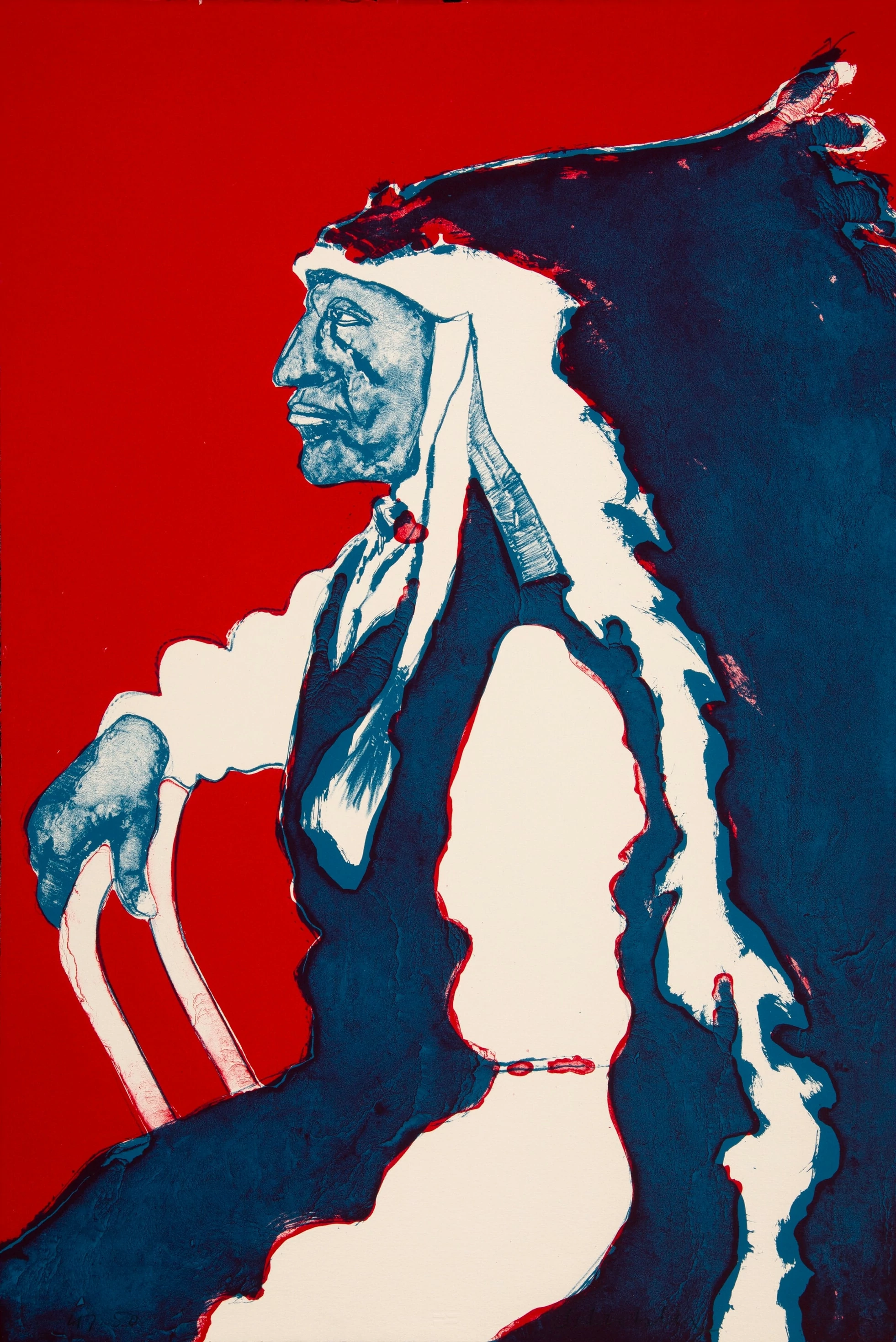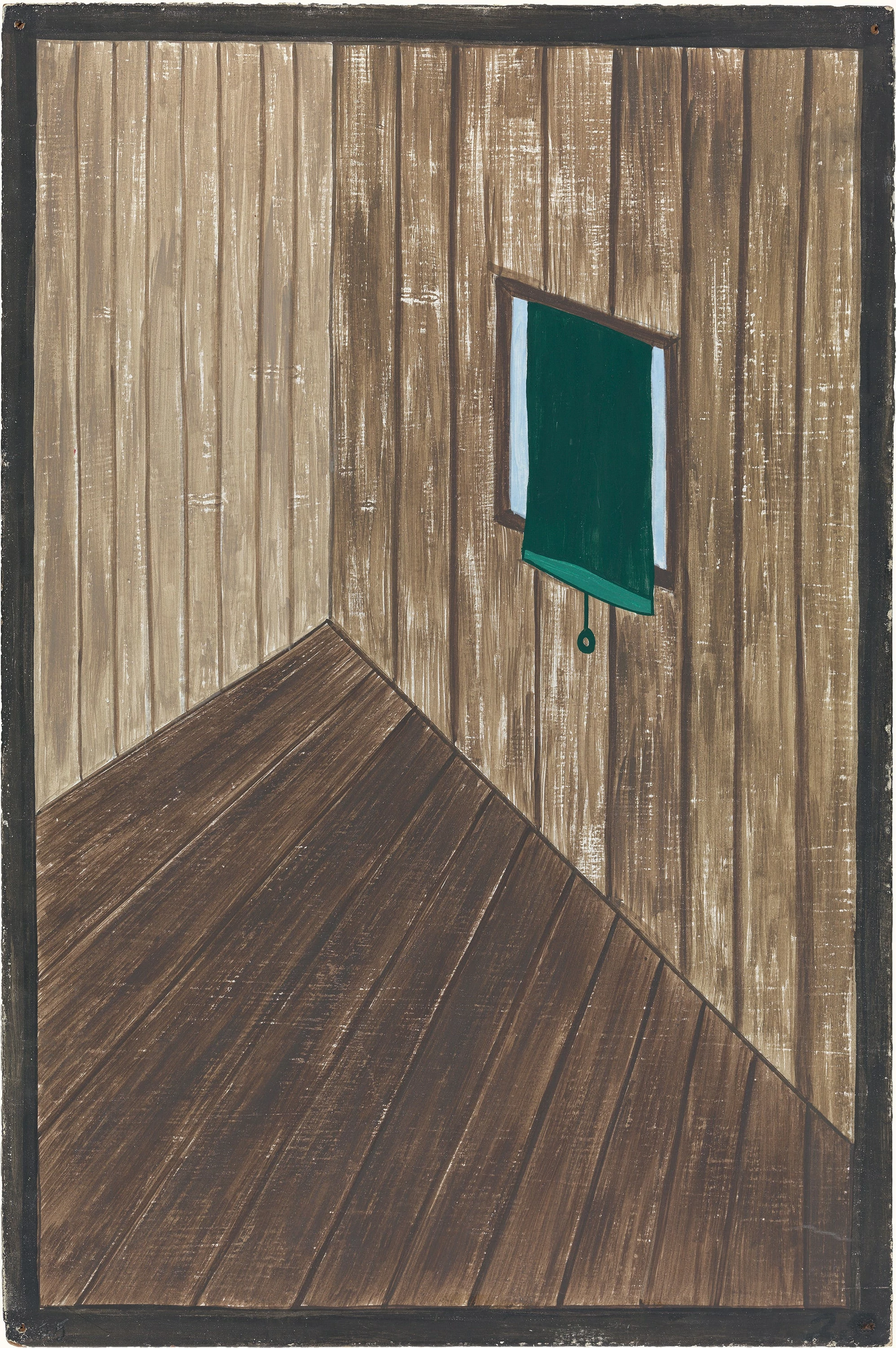
Migration Series No.25: They left their homes. Soon some communities were left almost empty Jacob Lawrence, 1940 – 1941
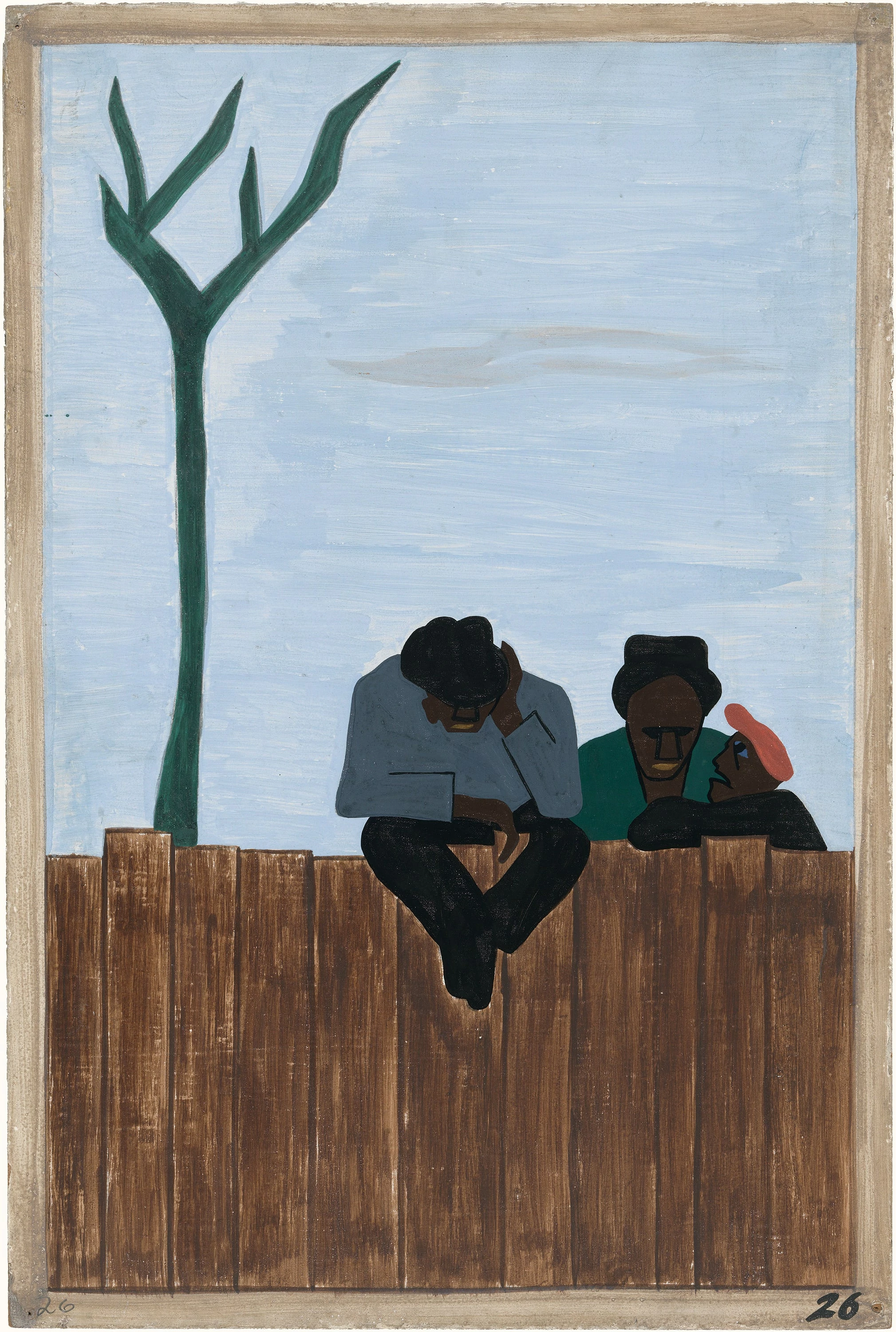
Migration Series No.26: And people all over the South continued to discuss this great movement Jacob Lawrence, 1940 – 1941
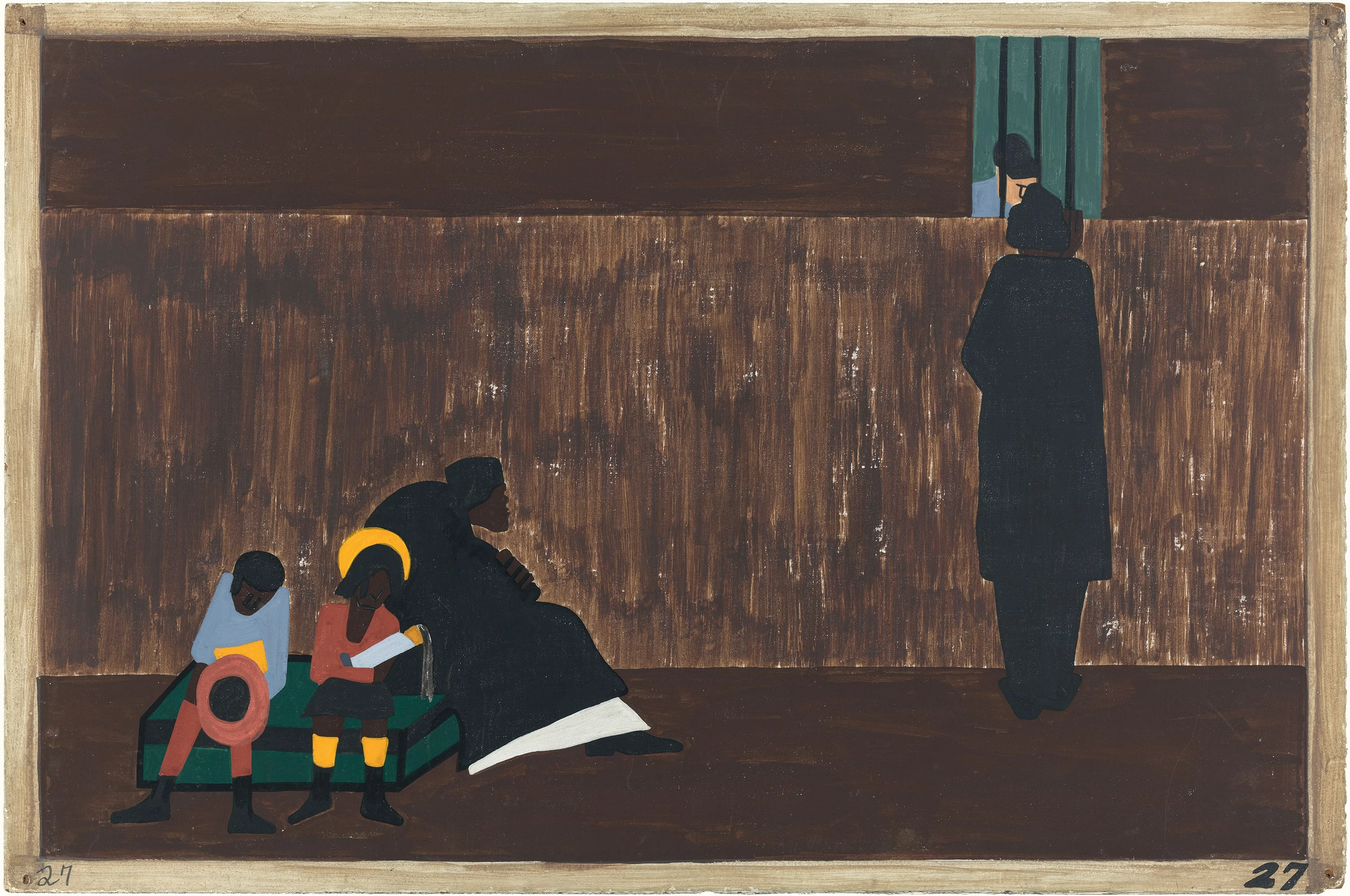
Migration Series No.27: Many men stayed behind until they could take their families north with them Jacob Lawrence, 1940 – 1941
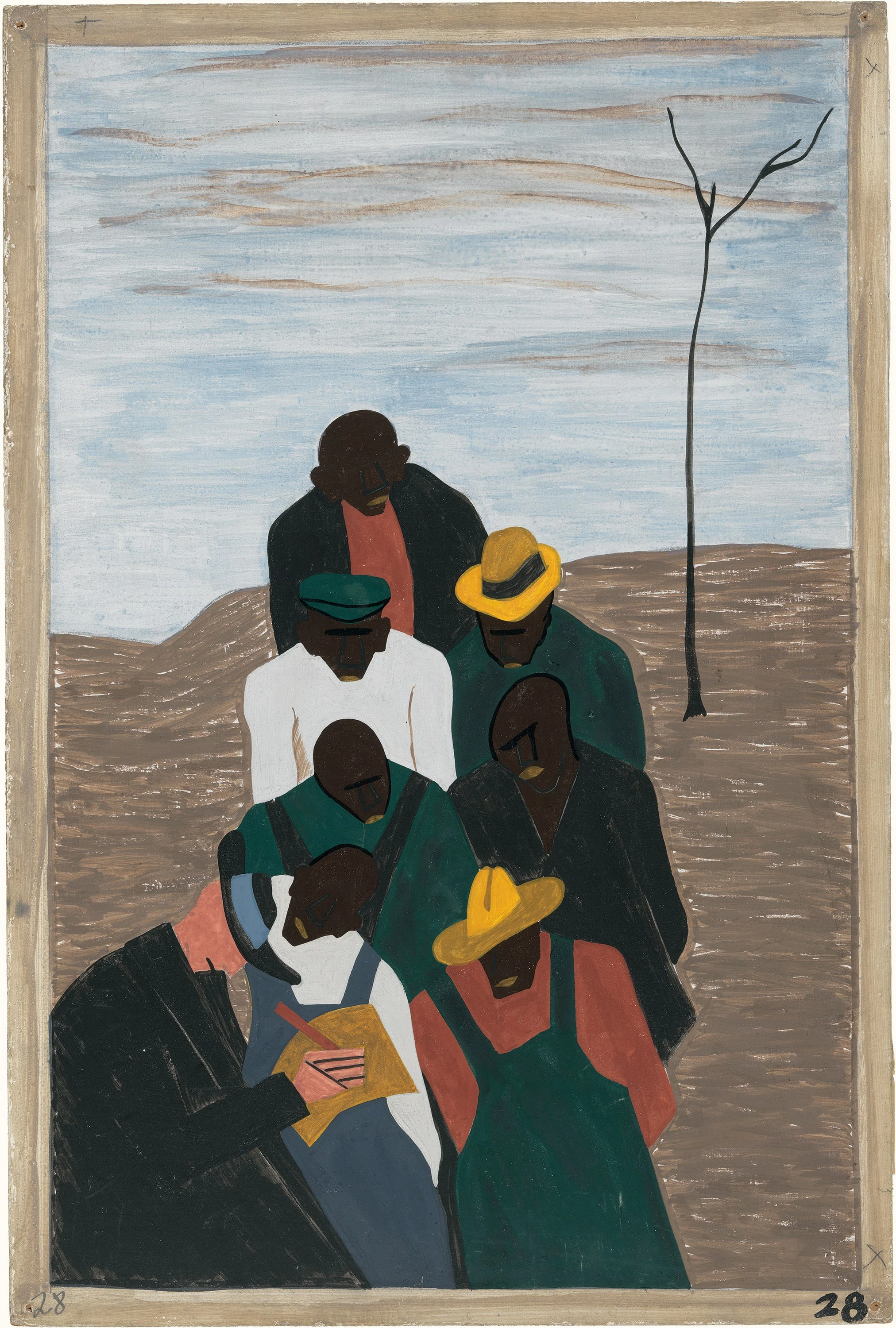
Migration Series No.28: The labor agent sent south by northern industry was a familiar presence in the Black communities Jacob Lawrence, 1940 – 1941
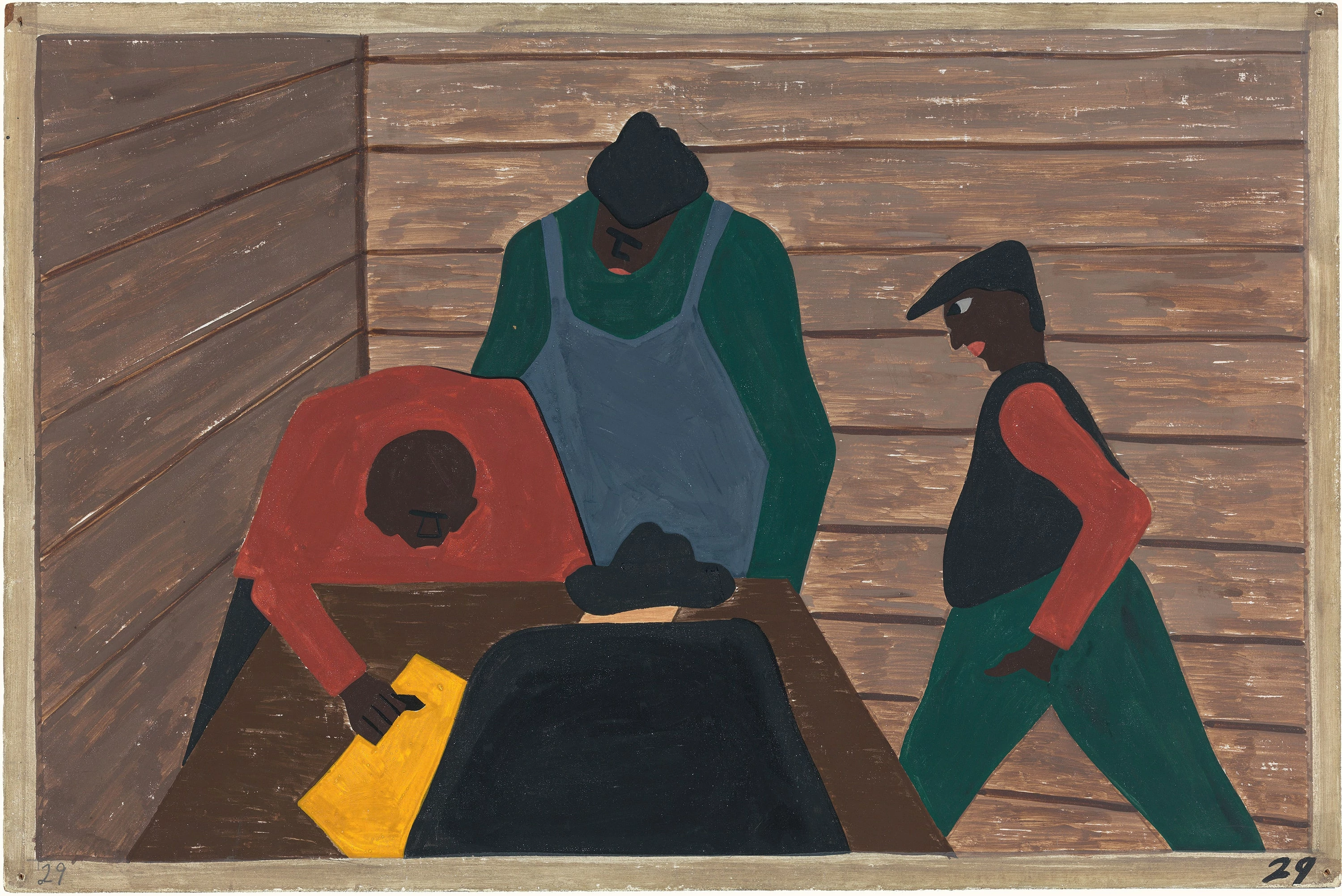
Migration Series No.29: The labor agent recruited unsuspecting laborers as strike breakers for northern industries Jacob Lawrence, 1940 – 1941
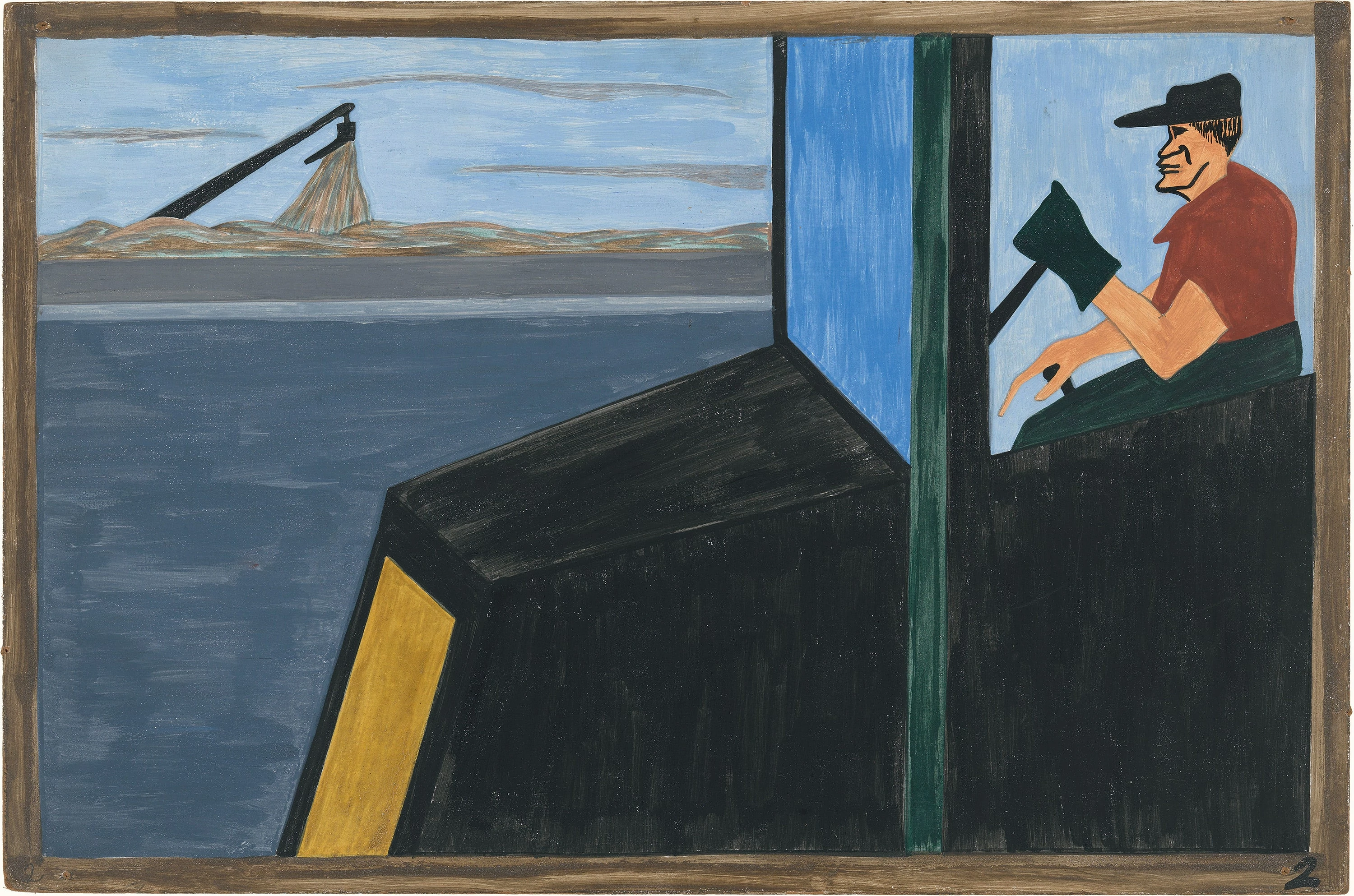
Migration Series No.2: The war had caused a labor shortage in northern industry. Citizens of foreign countries were returning to their native lands Jacob Lawrence, 1940 – 1941
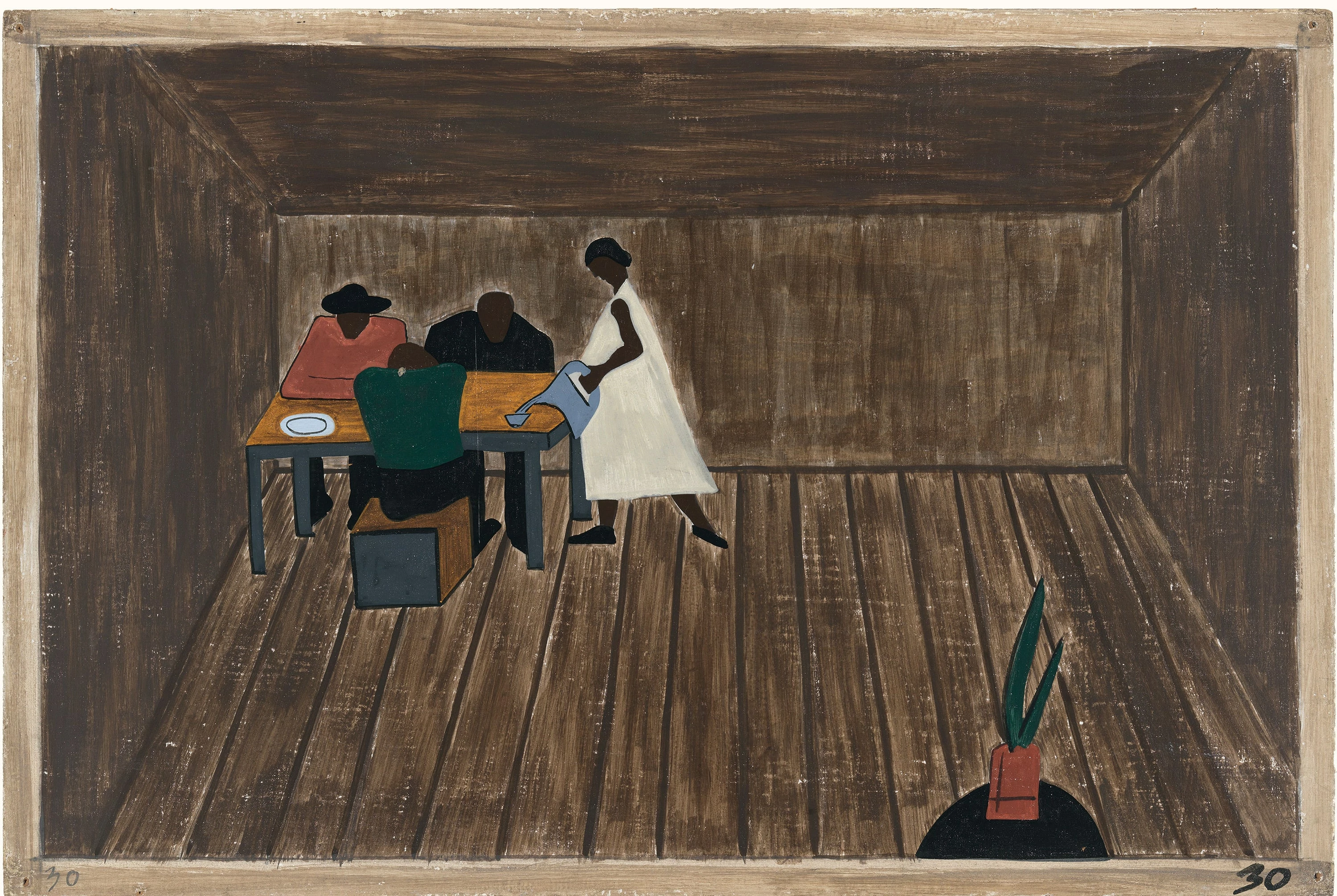
Migration Series No.30: In every southern home people met to decide whether or not to go north Jacob Lawrence, 1940 – 1941
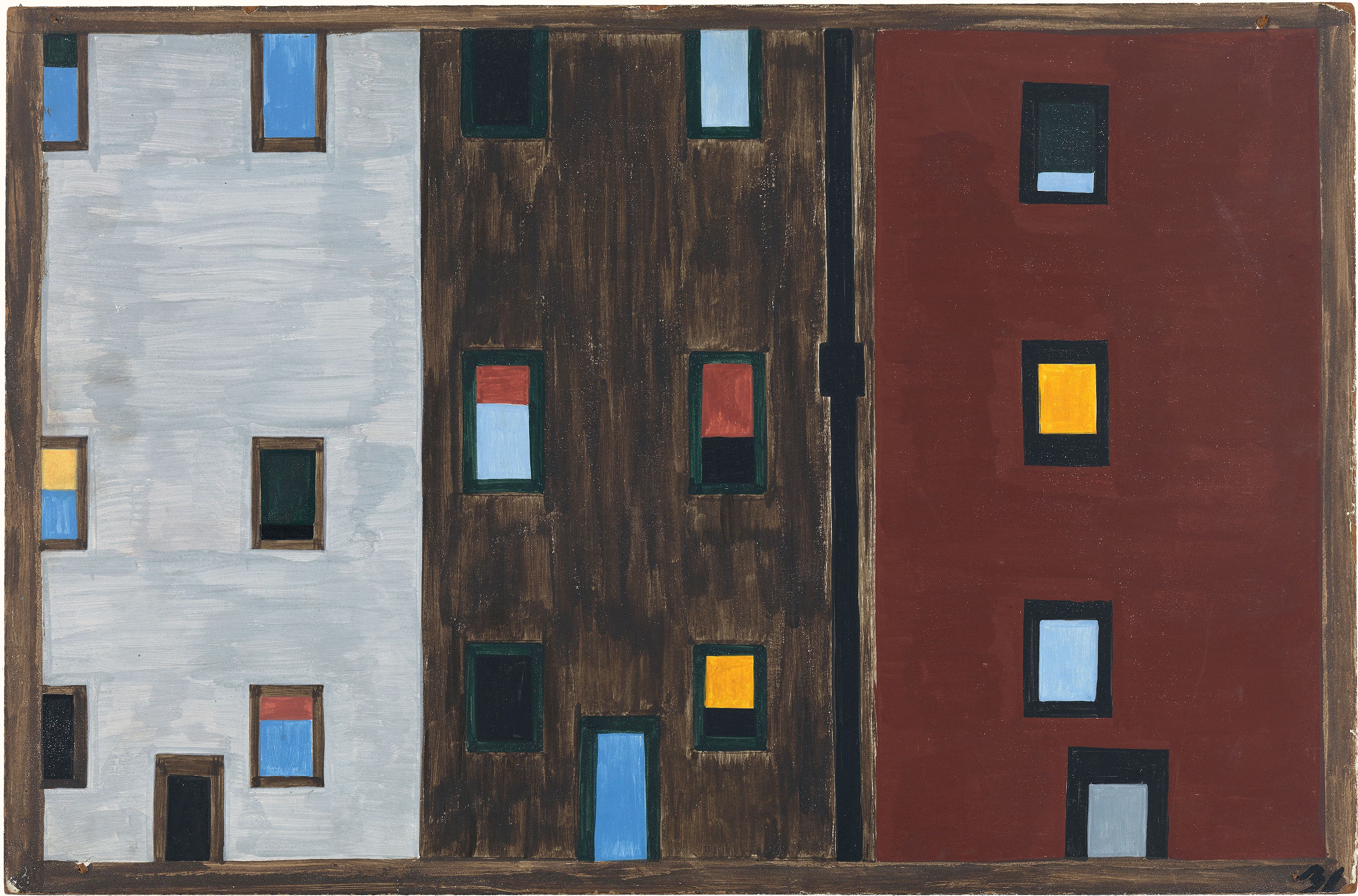
Migration Series No.31: The migrants found improved housing when they arrived north Jacob Lawrence, 1940 – 1941
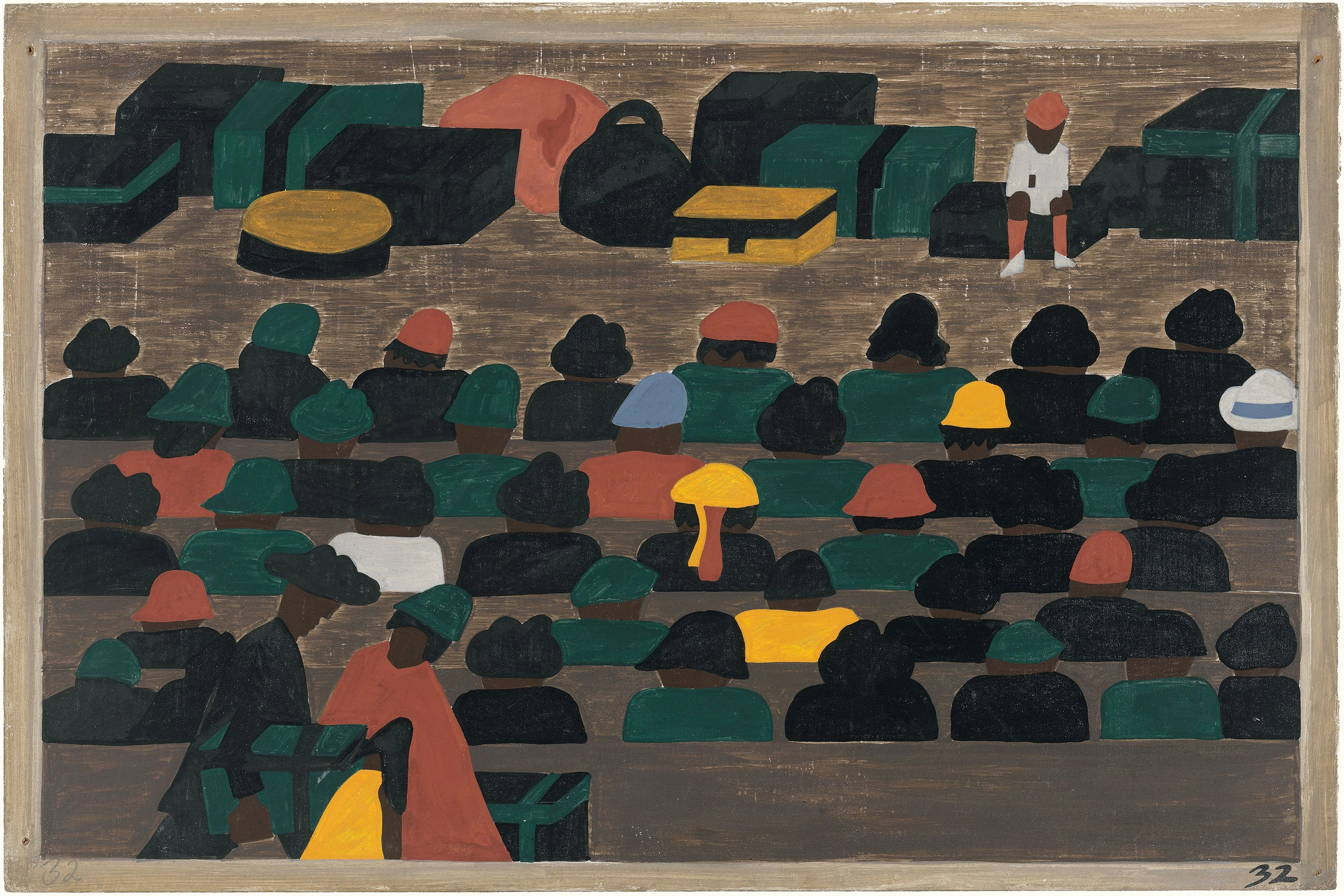
Migration Series No.32: The railroad stations in the South were crowded with northbound travelers Jacob Lawrence, 1940 – 1941
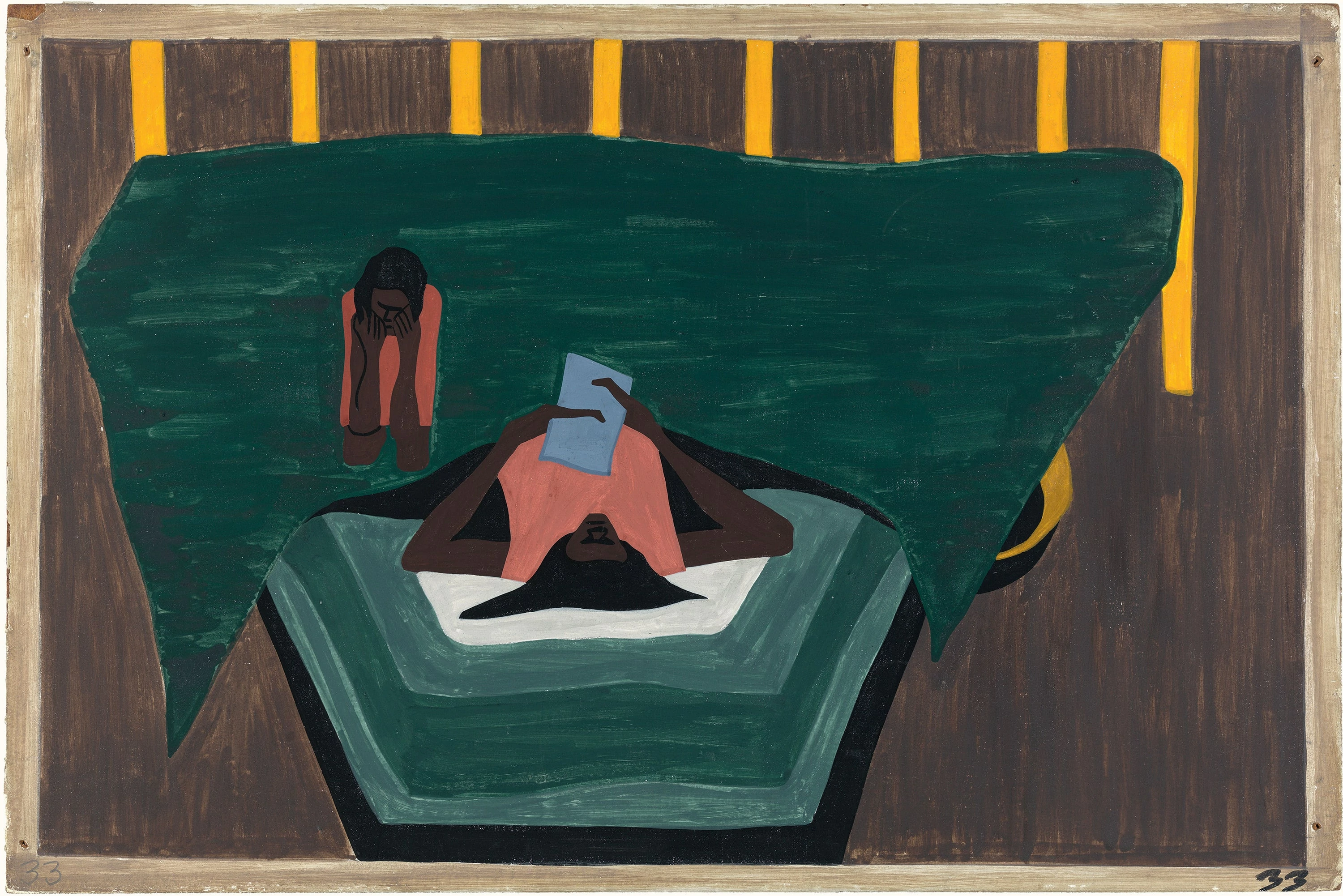
Migration Series No.33: Letters from relatives in the North told of the better life there Jacob Lawrence, 1940 – 1941
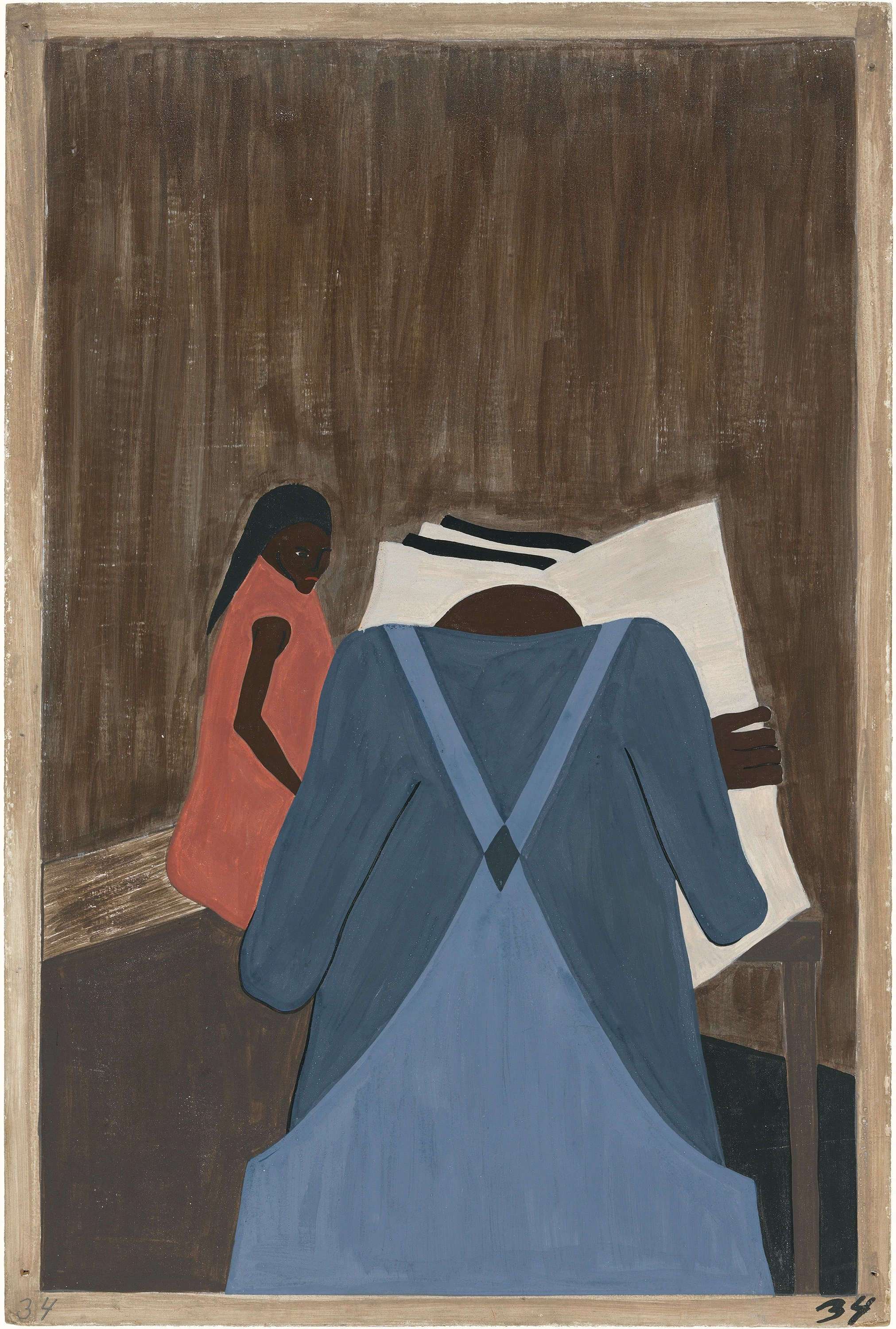
Migration Series No.34: The Black press urged the people to leave the South Jacob Lawrence, 1940 – 1941
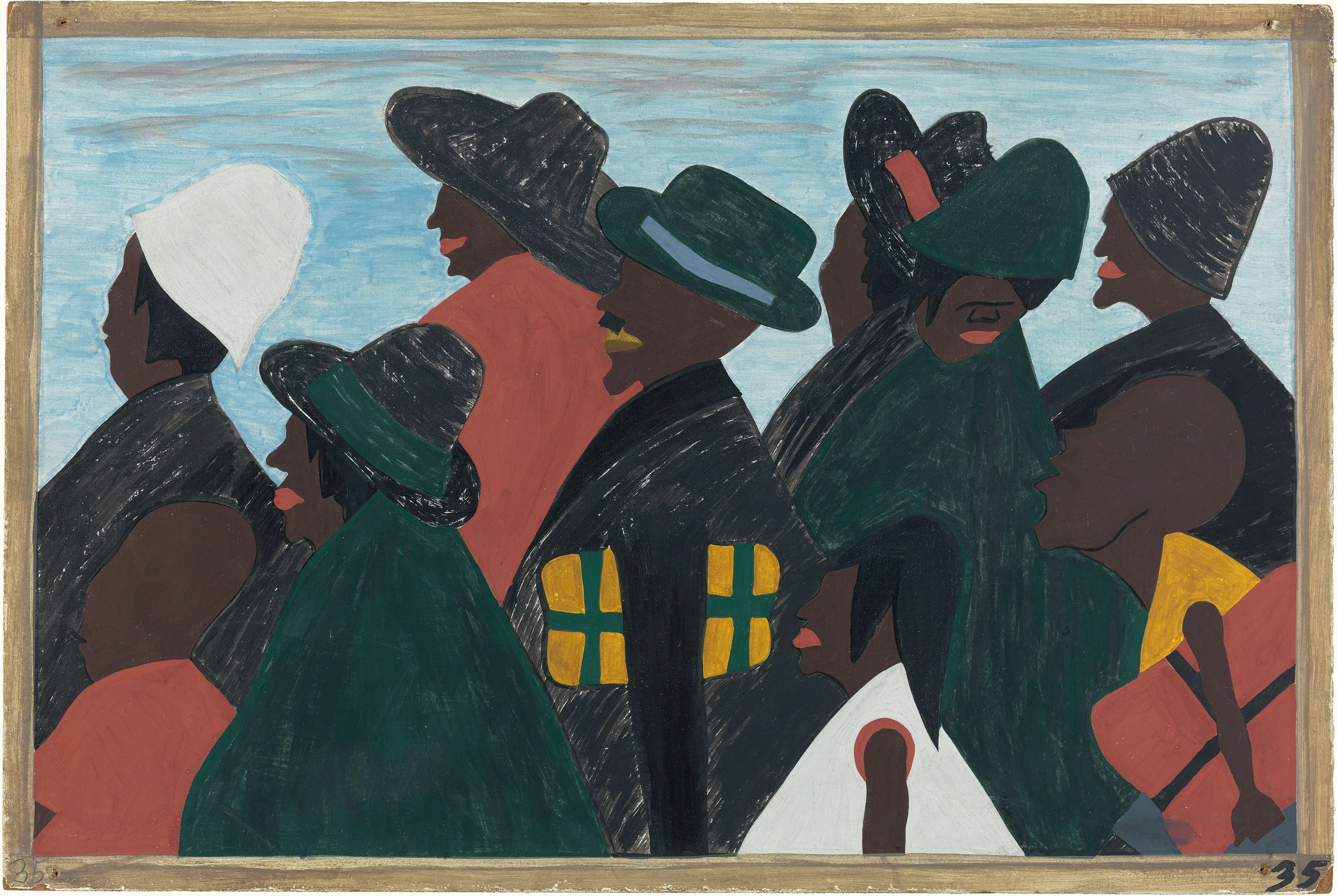
Migration Series No.35: They left the South in great numbers. They arrived in the North in great numbers Jacob Lawrence, 1940 – 1941
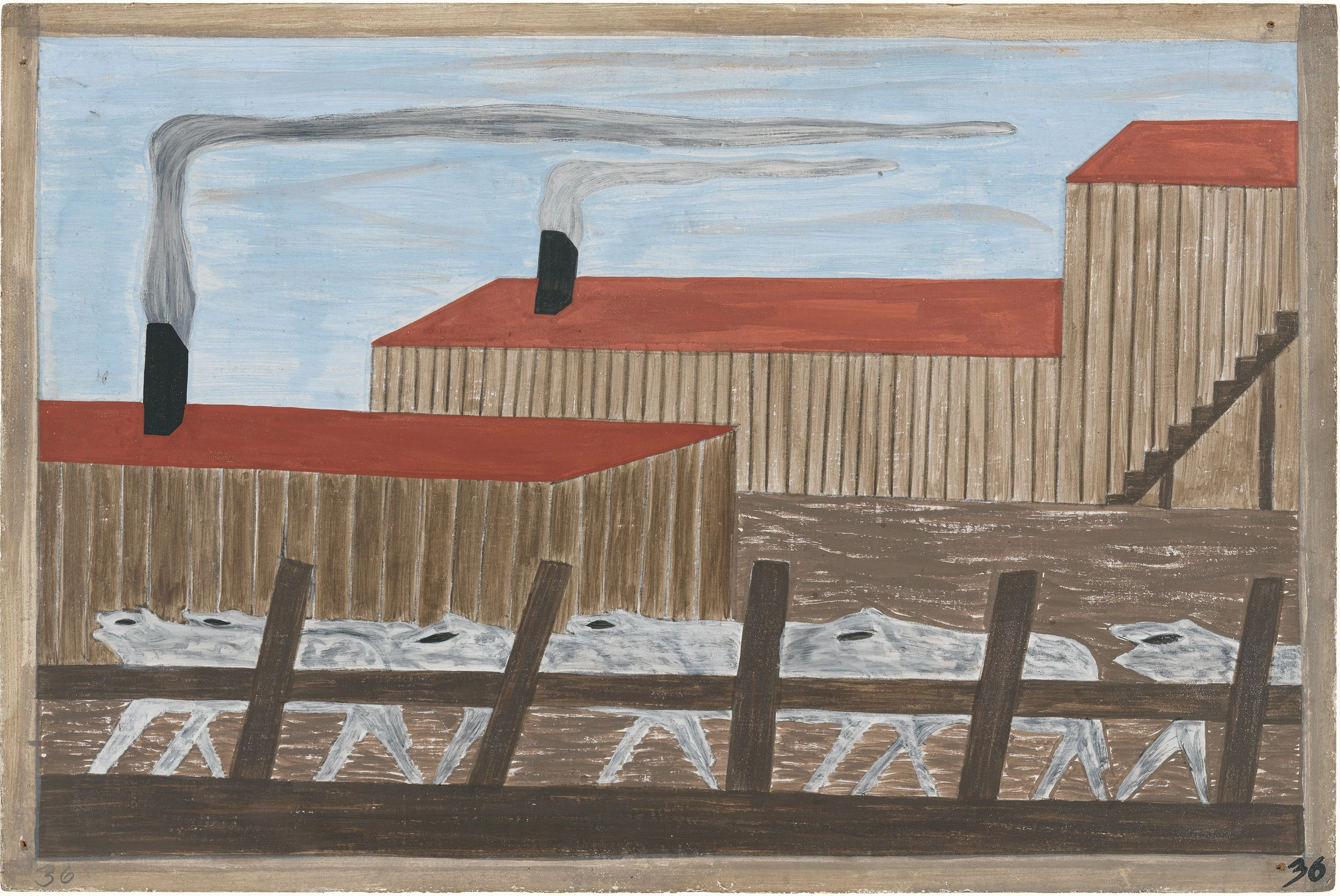
Migration Series No.36: Migrants arrived in Chicago, the gateway to the West Jacob Lawrence, 1940 – 1941
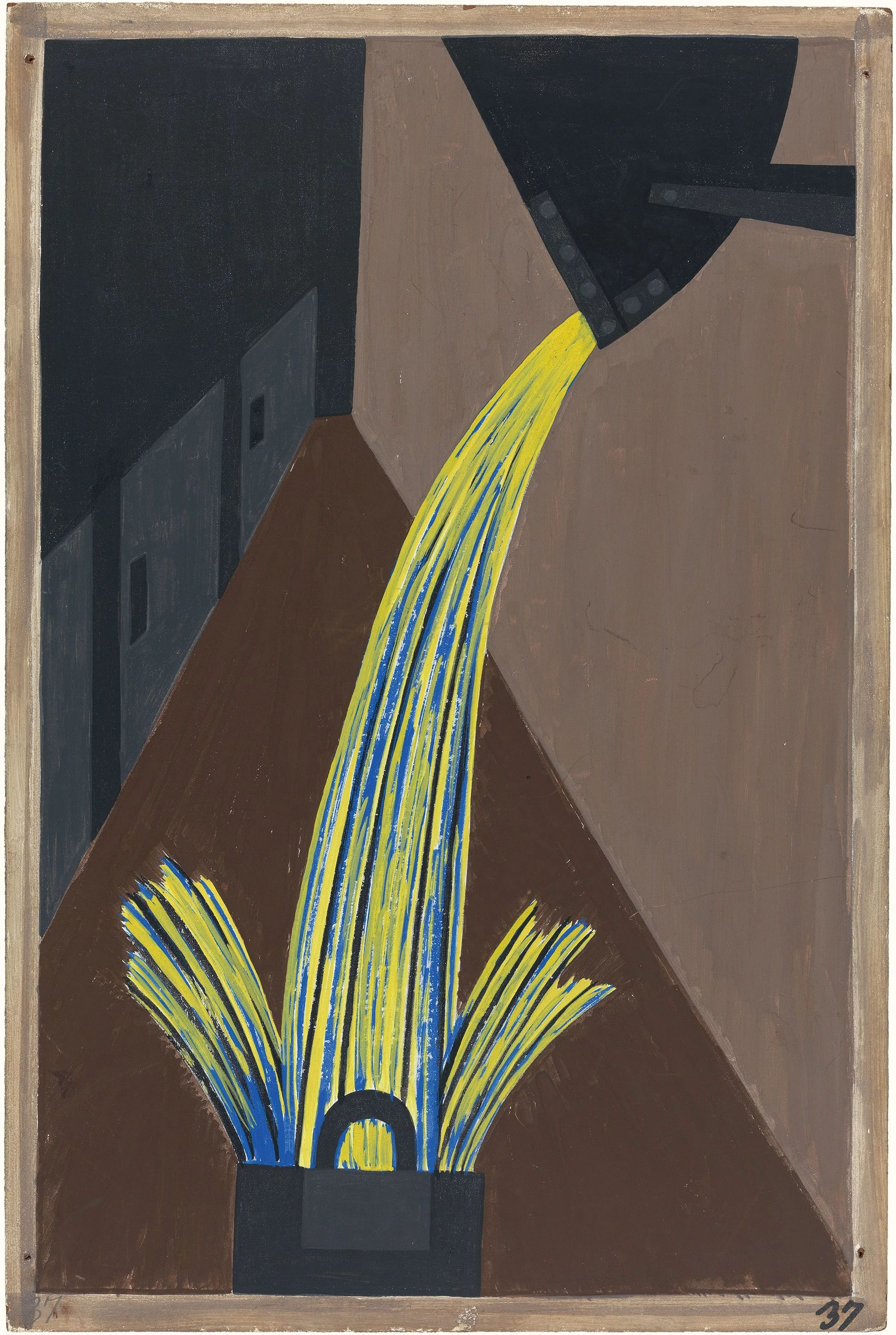
Migration Series No.37: Many migrants found work in the steel industry Jacob Lawrence, 1940 – 1941
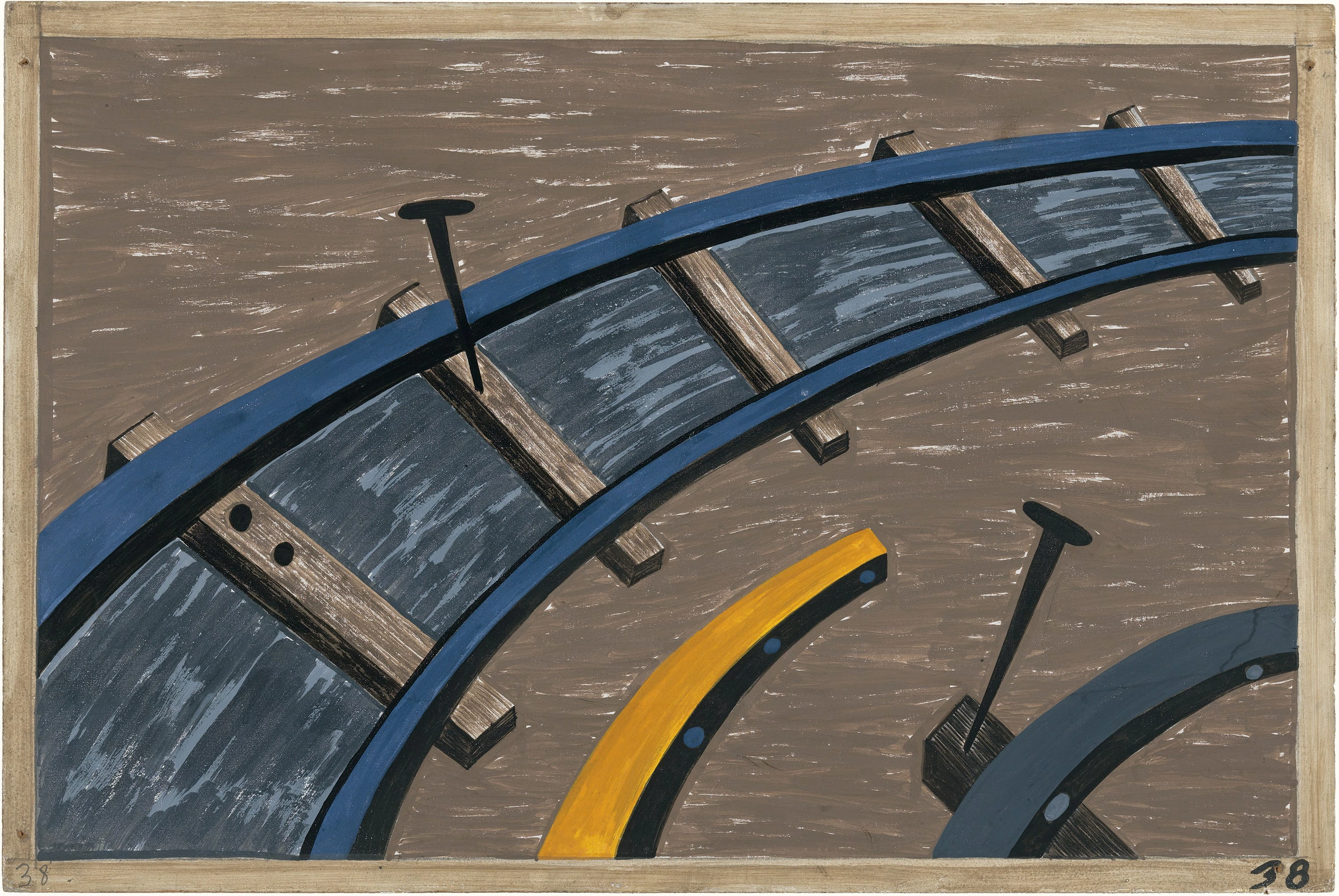
Migration Series No.38: They also worked on the railroads Jacob Lawrence, 1940 – 1941
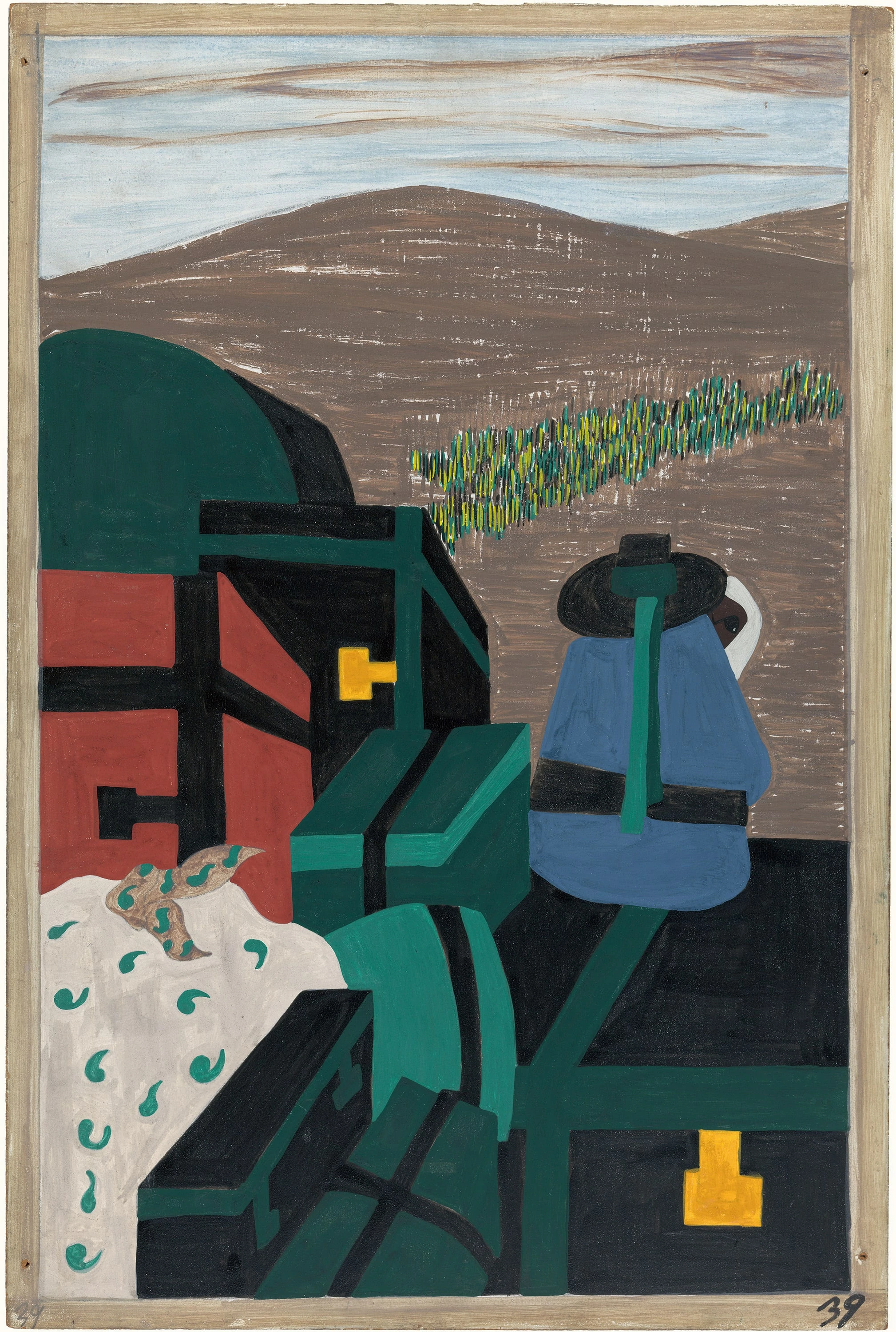
Migration Series No.39: Railroad platforms were piled high with luggage Jacob Lawrence, 1940 – 1941
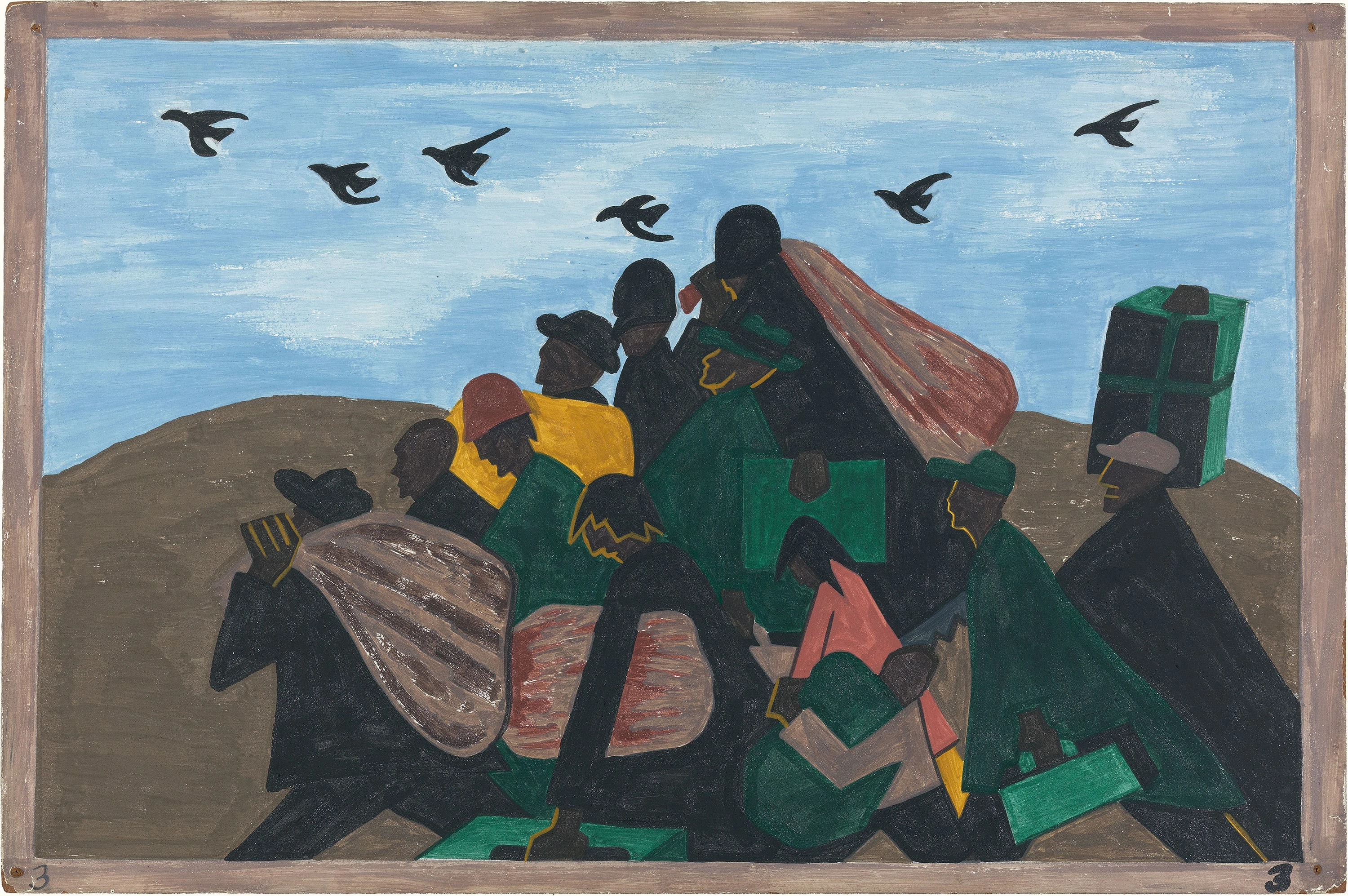
Migration Series No.3: From every southern town migrants left by the hundreds to travel north Jacob Lawrence, 1940 – 1941
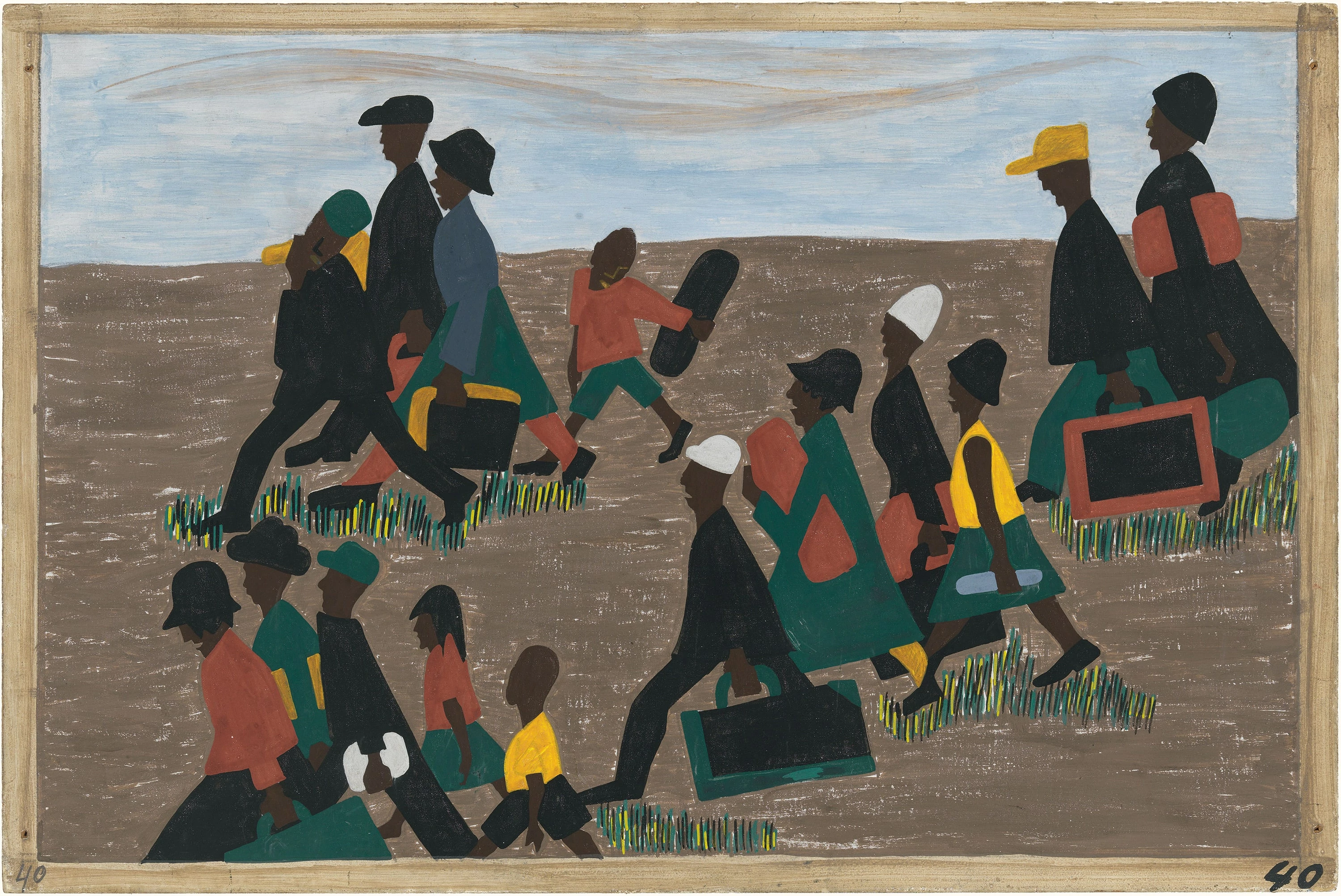
Migration Series No.40: The migrants arrived in great numbers Jacob Lawrence, 1940 – 1941
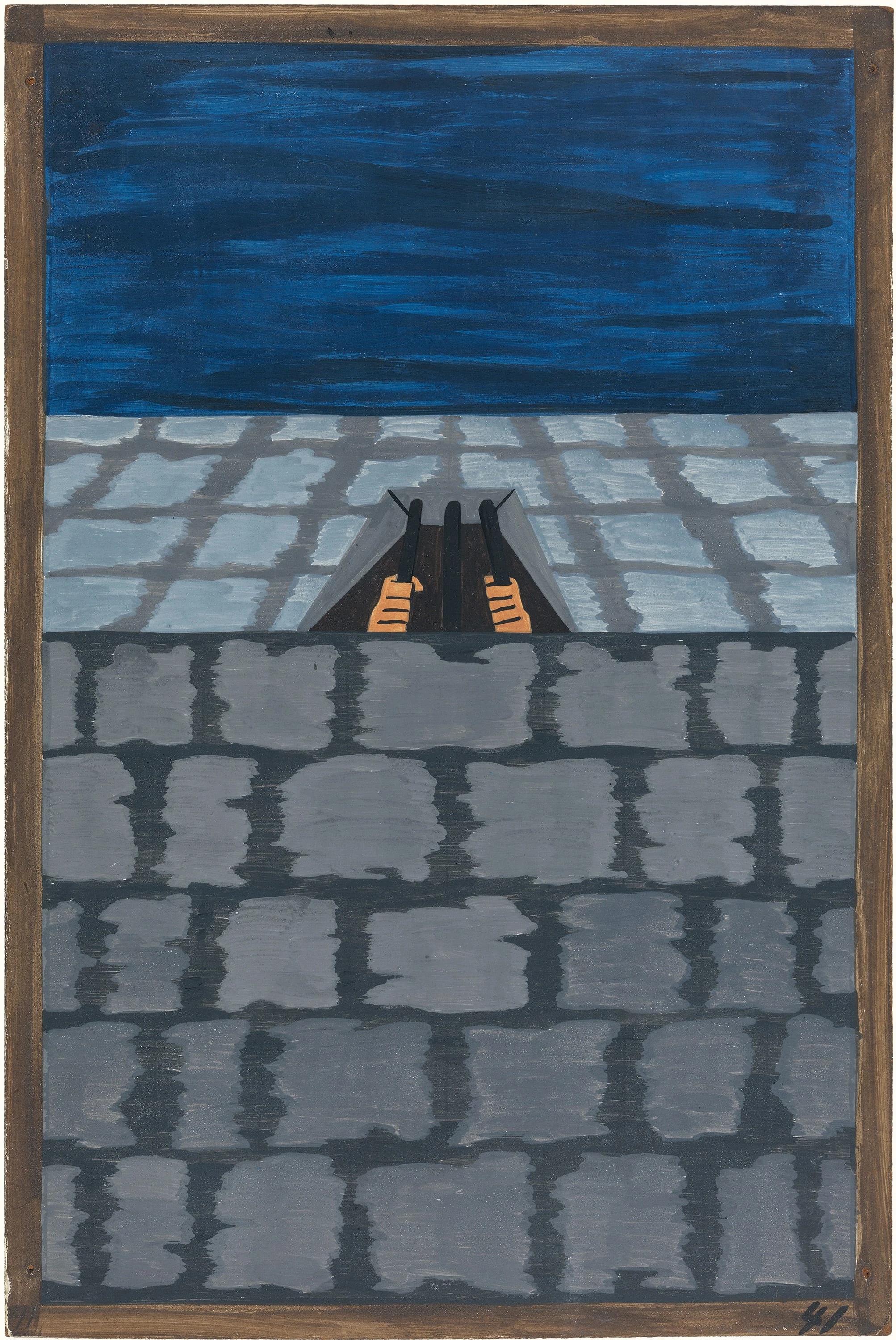
Migration Series No.41: The South was desperate to keep its cheap labor. Northern labor agents were jailed or forced to operate in secrecy Jacob Lawrence, 1940 – 1941
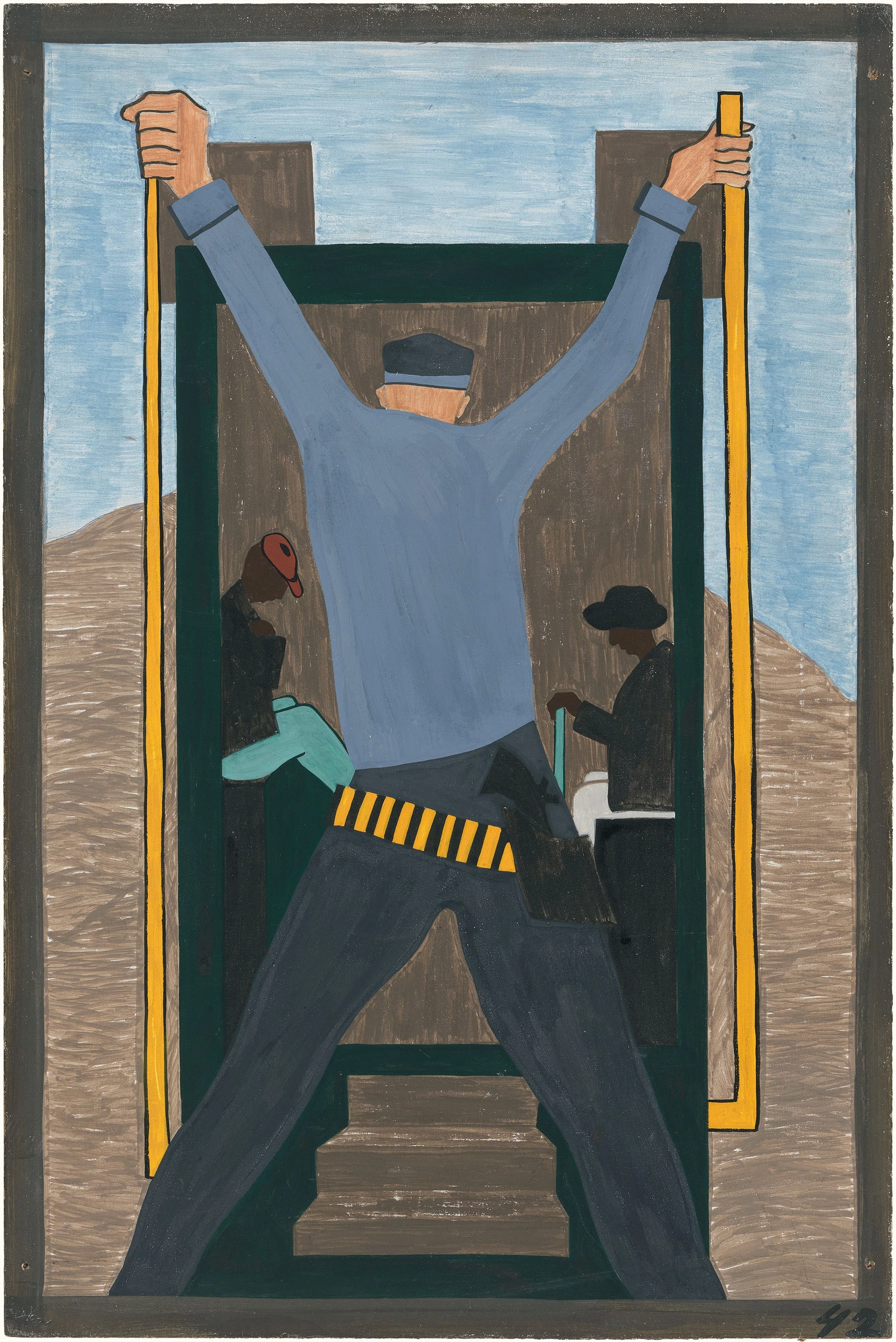
Migration Series No.42: To make it difficult for the migrants to leave, they were arrested en masse. They often missed their trains Jacob Lawrence, 1940 – 1941
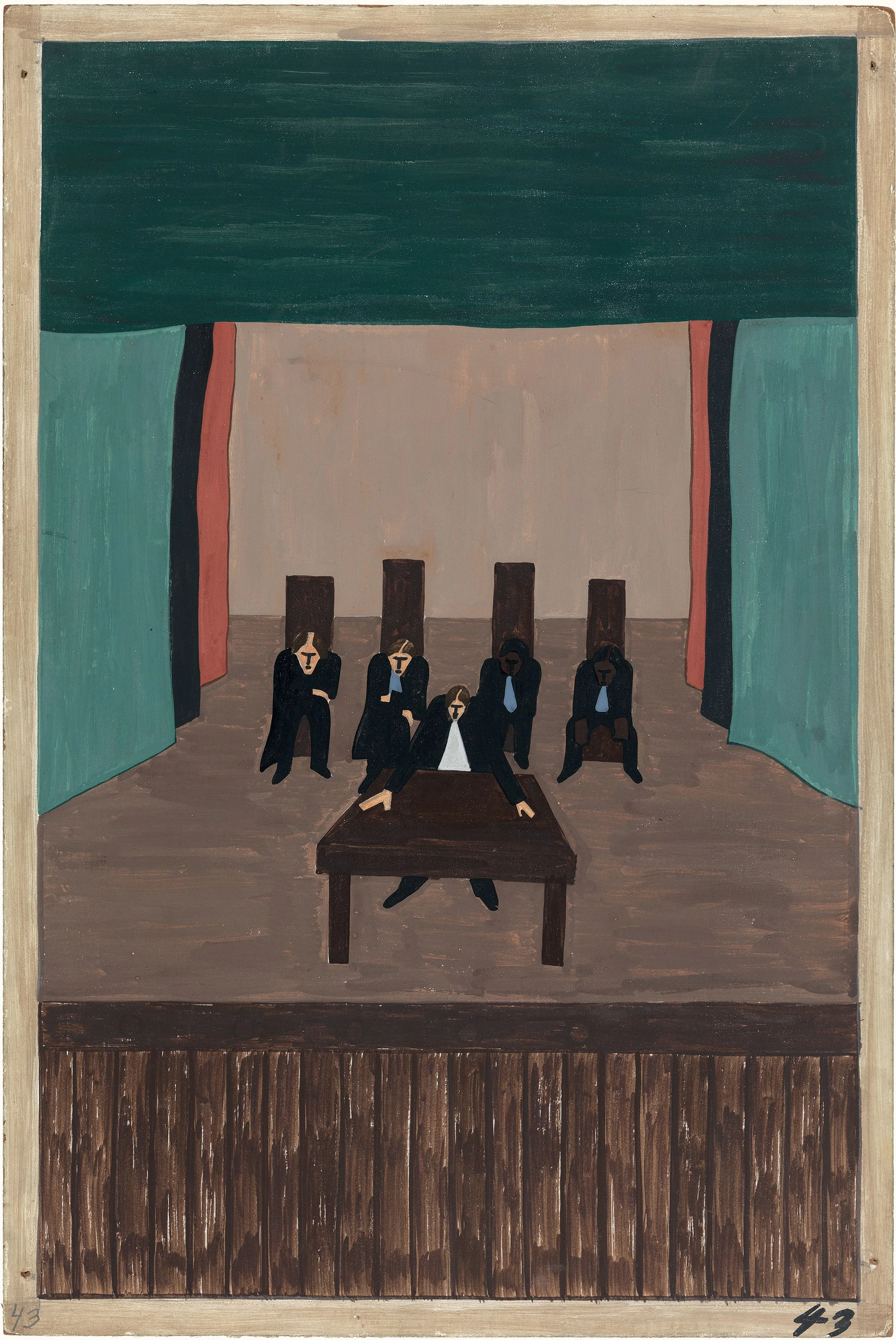
Migration Series No.43: In a few sections of the South leaders of both Black and White communities met to discuss ways of making the South a good place to live Jacob Lawrence, 1940 – 1941
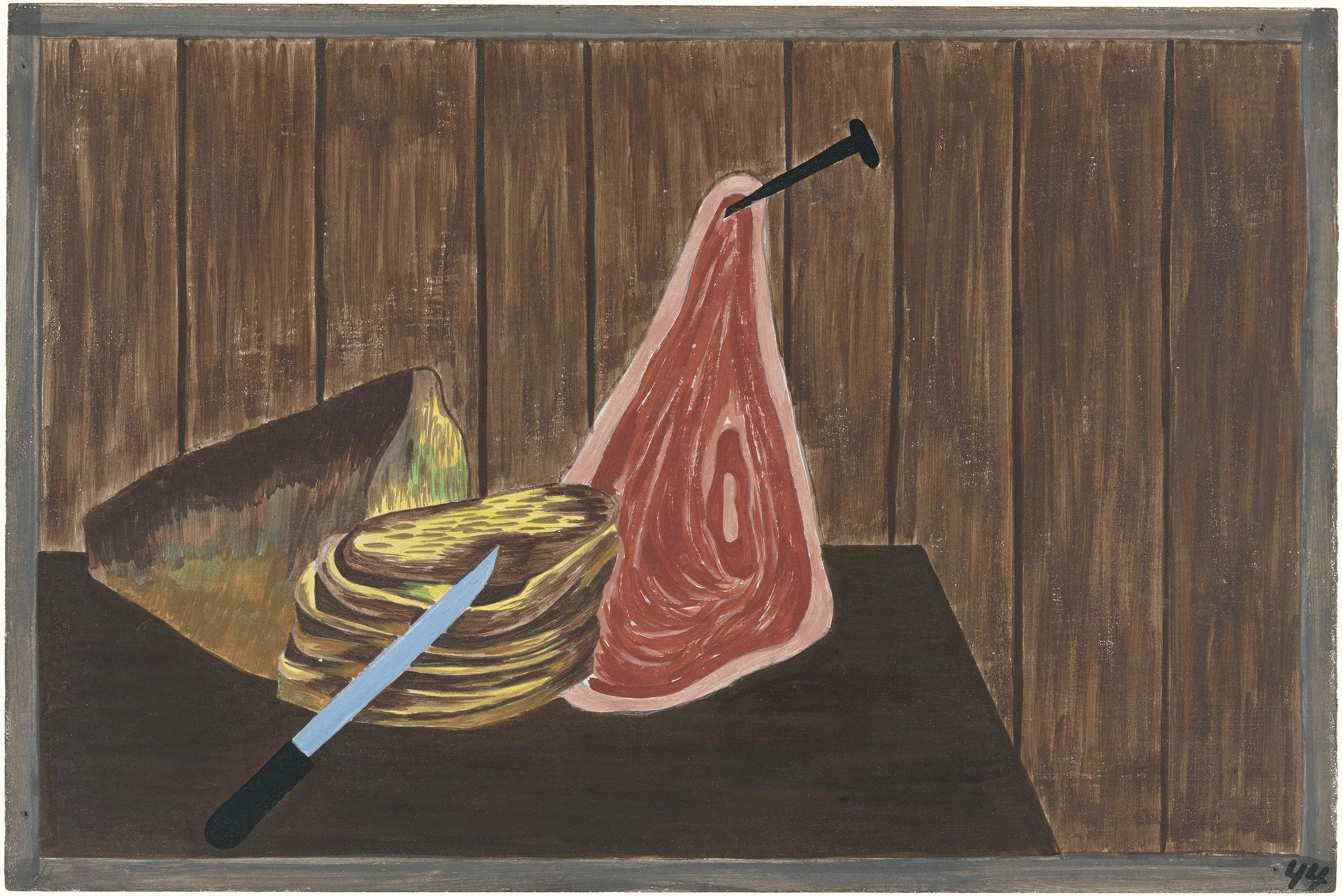
Migration Series No.44: But living conditions were better in the North Jacob Lawrence, 1940 – 1941
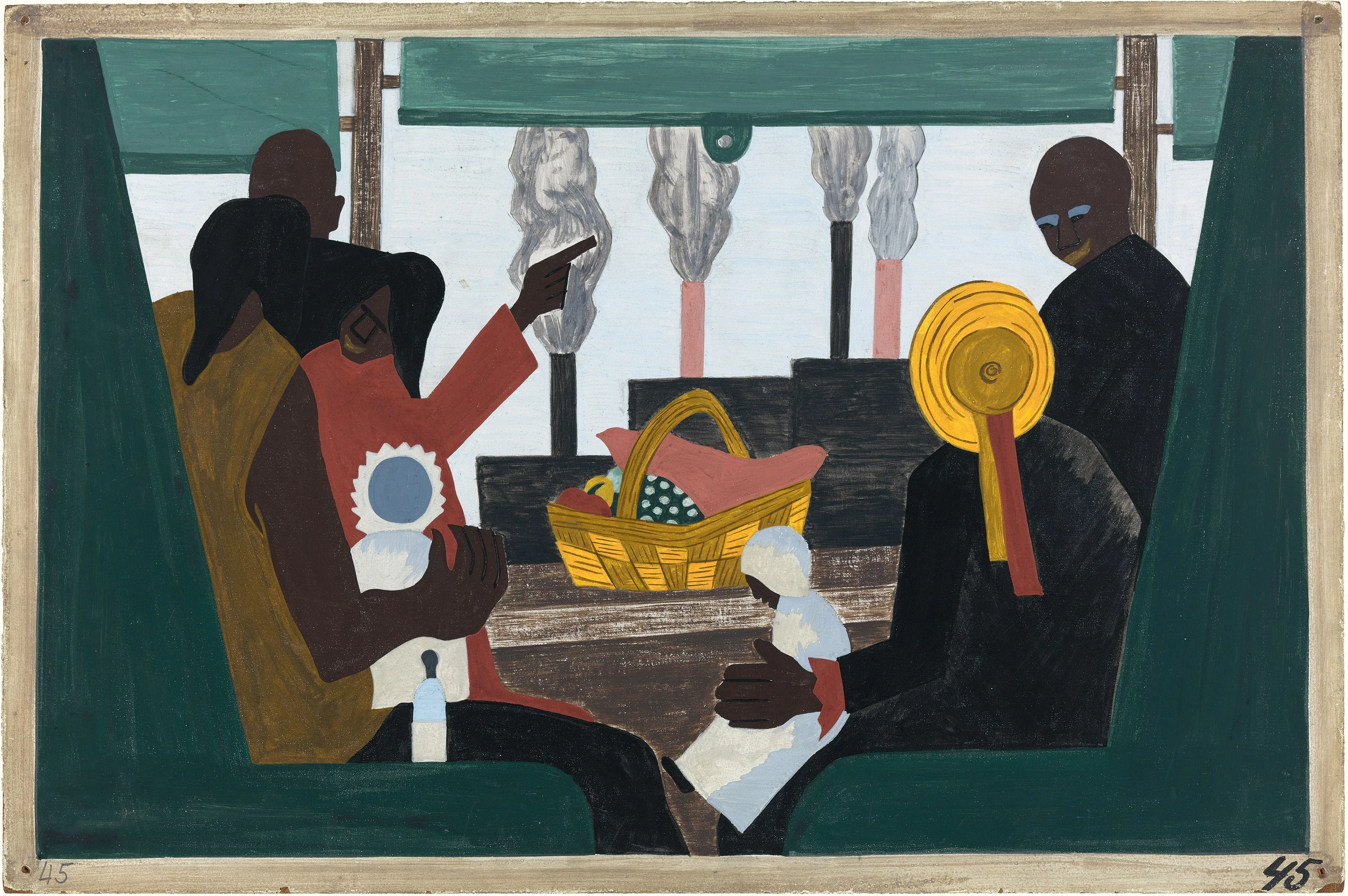
Migration Series No.45: The migrants arrived in Pittsburgh, one of the great industrial centers of the North Jacob Lawrence, 1940 – 1941
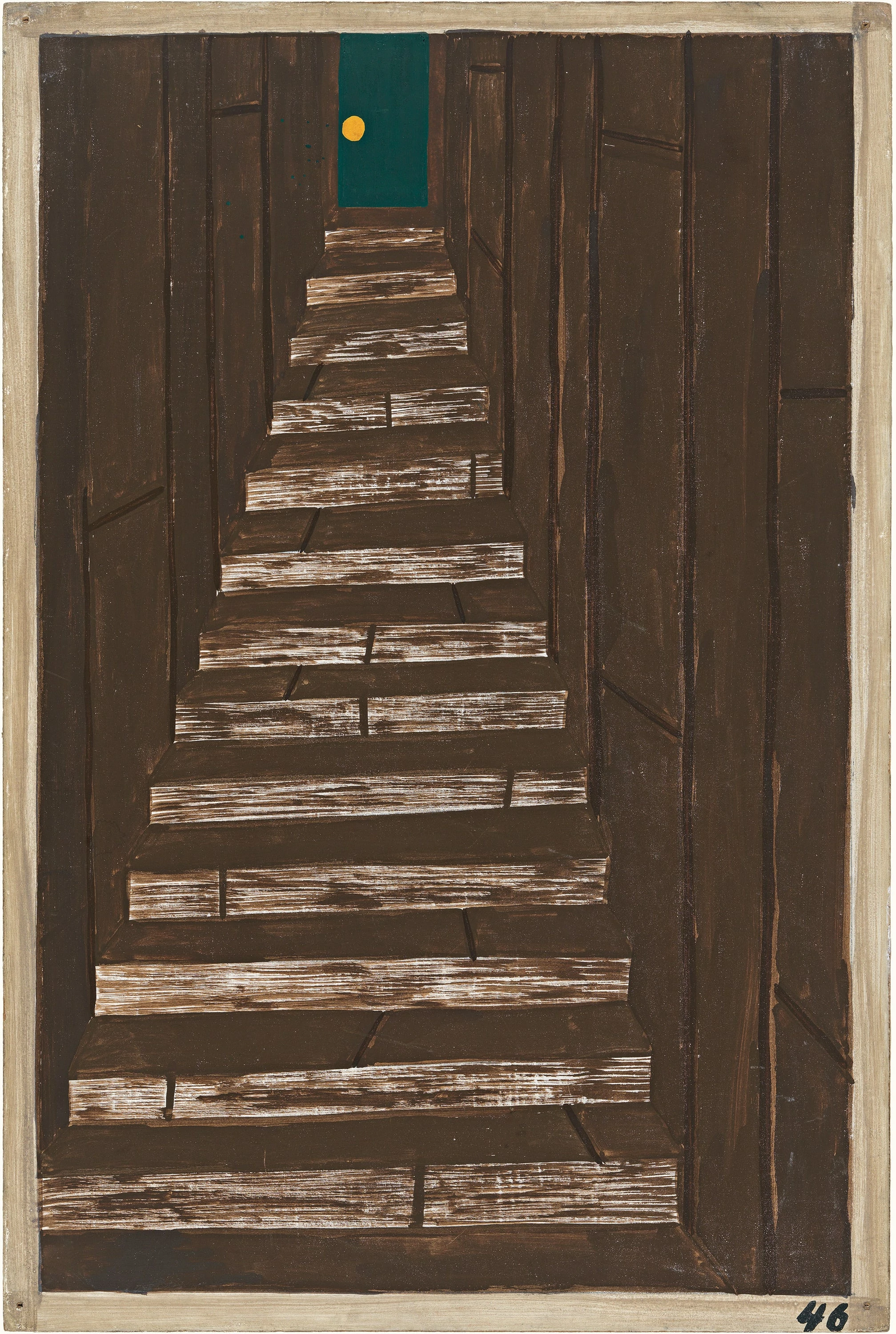
Migration Series No.46: Industries boarded their workers in unhealthy quarters. Labor camps were numerous Jacob Lawrence, 1940 – 1941
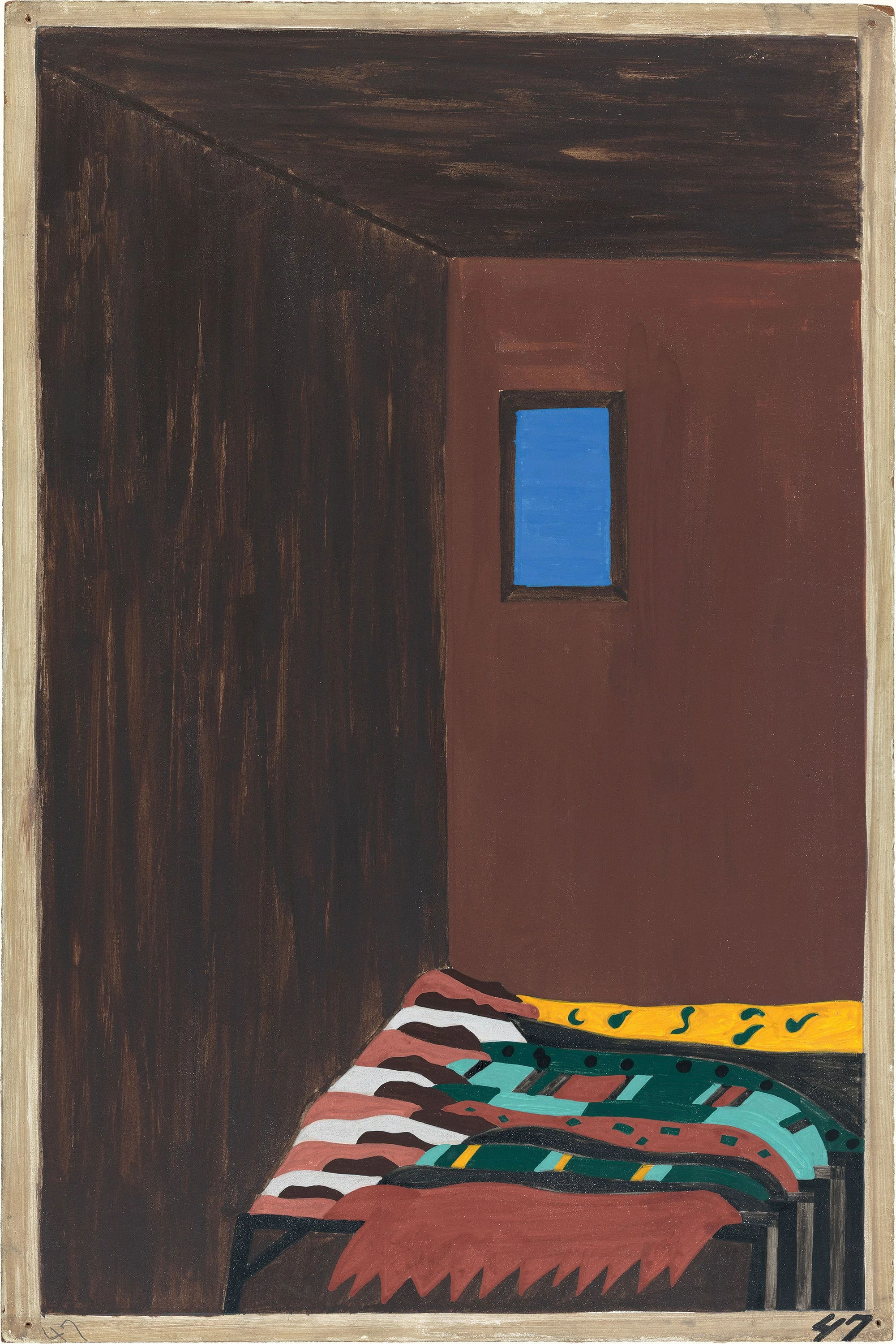
Migration Series No.47: As the migrant population grew, good housing became scarce. Workers were forced to live in overcrowded and dilapidated tenement houses Jacob Lawrence, 1940 – 1941
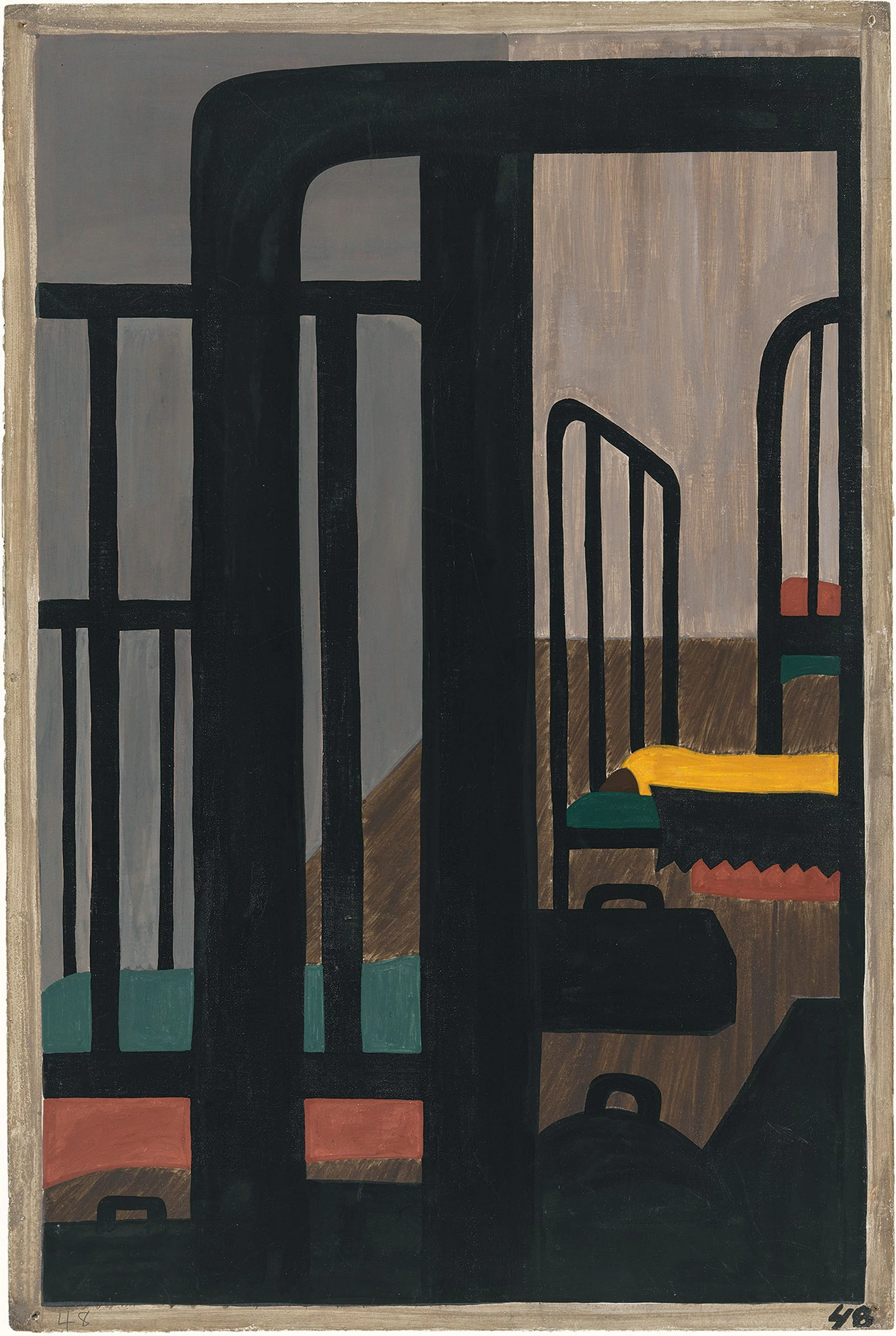
Migration Series No.48: Housing was a serious problem Jacob Lawrence, 1940 – 1941
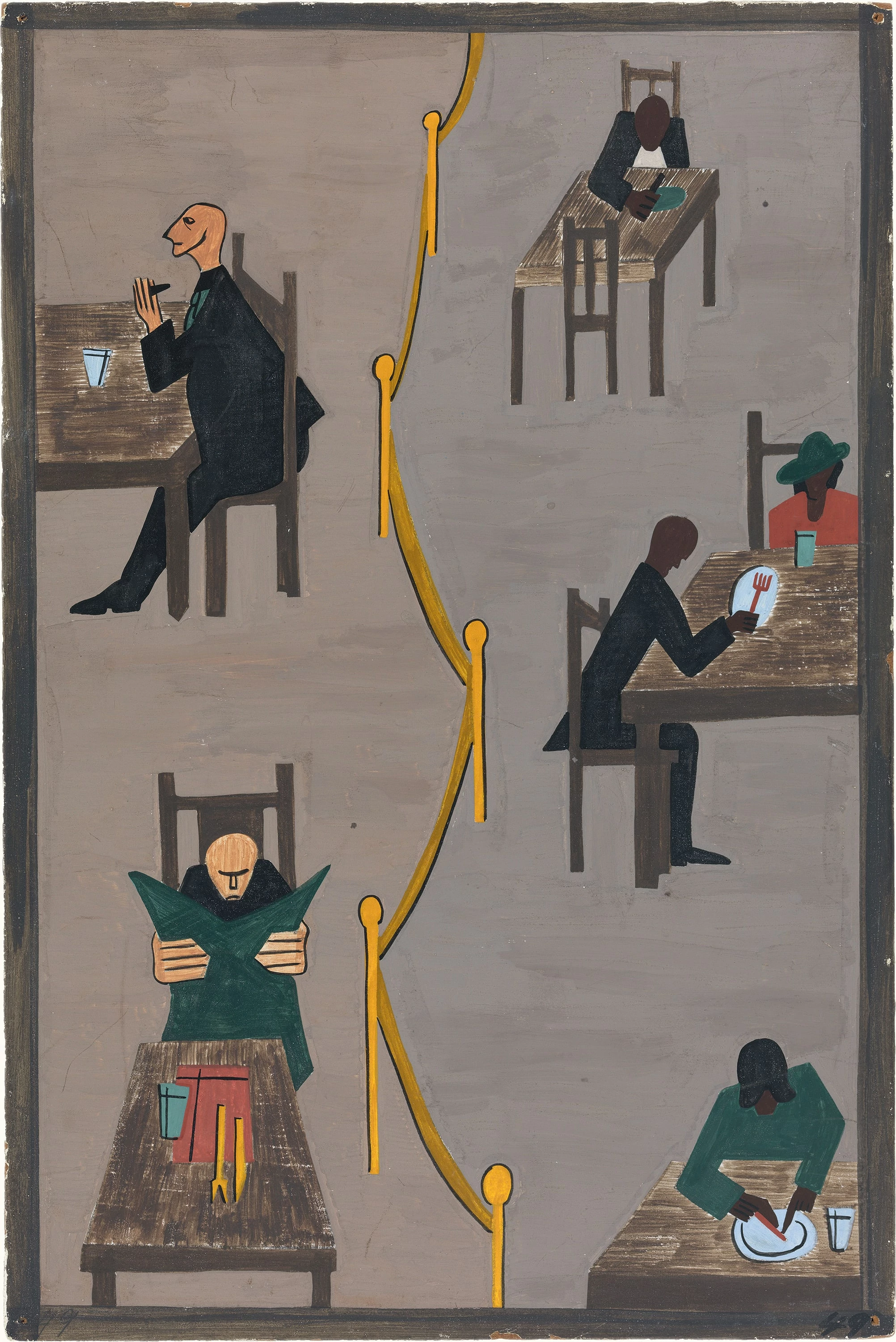
Migration Series No.49: They found discrimination in the North. It was a different kind Jacob Lawrence, 1940 – 1941
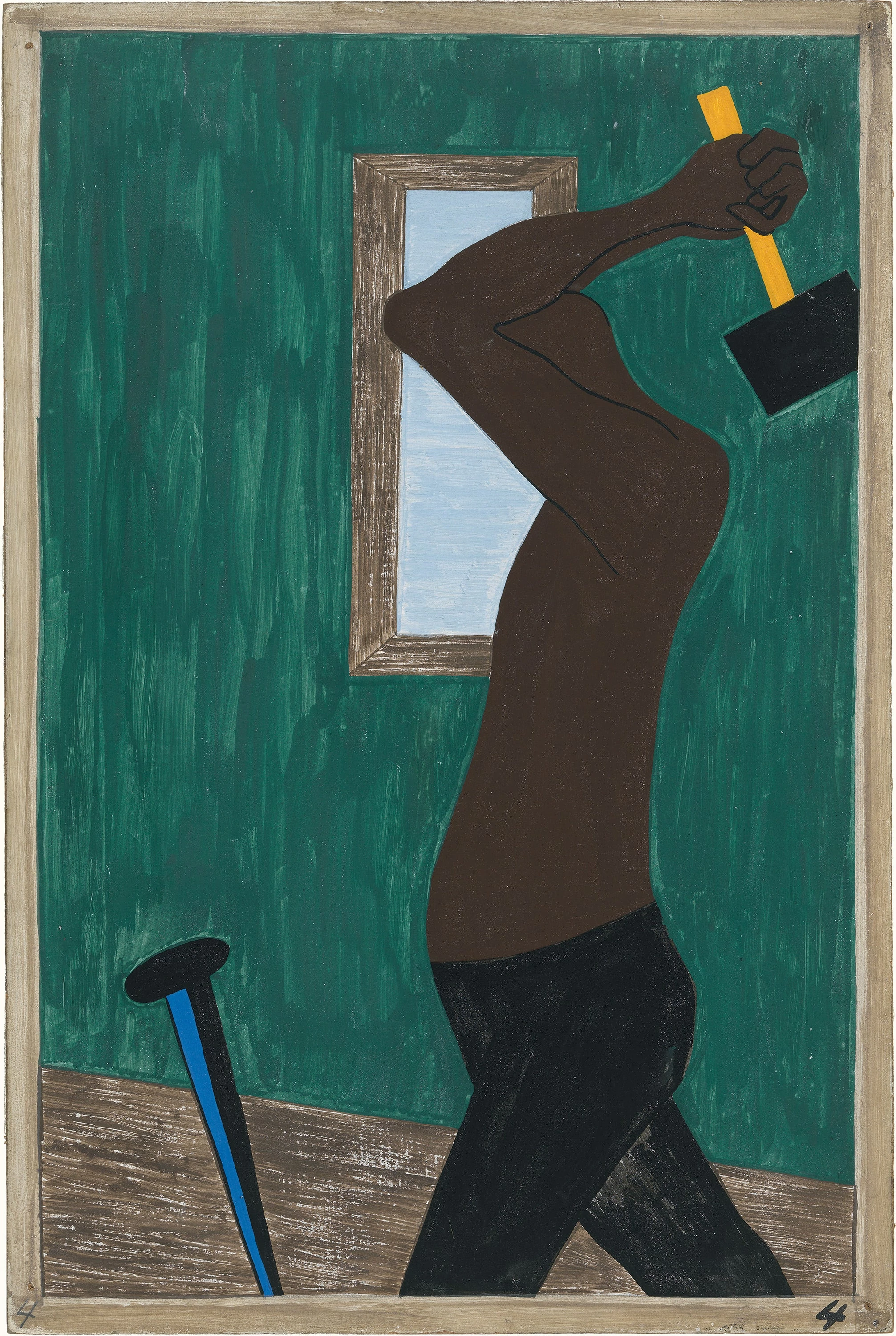
Migration Series No.4: All other sources of labor having been exhausted, the migrants were the last resource Jacob Lawrence, 1940 – 1941
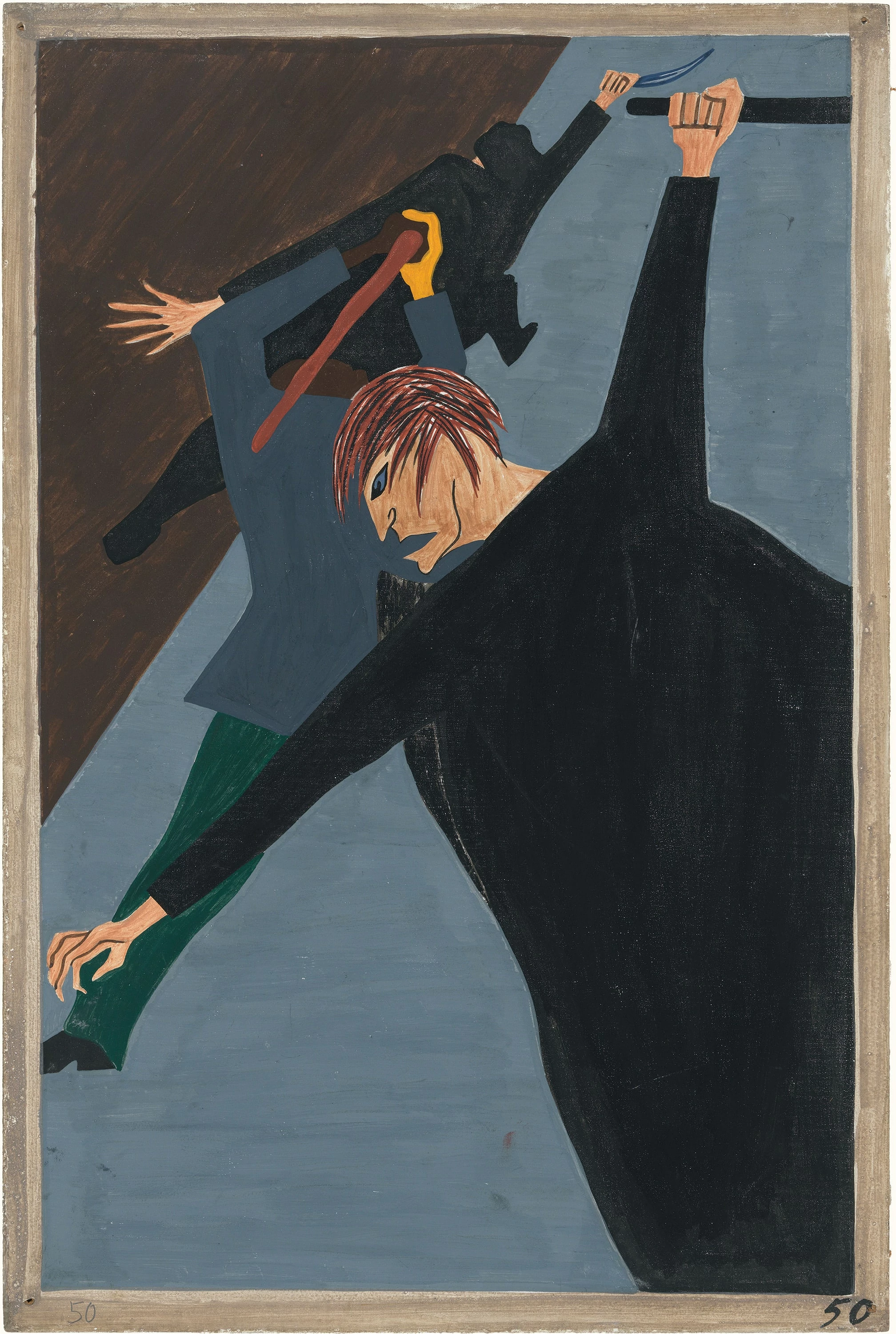
Migration Series No.50: Race riots were numerous. White workers were hostile toward the migrant who had been hired to break strikes Jacob Lawrence, 1940 – 1941
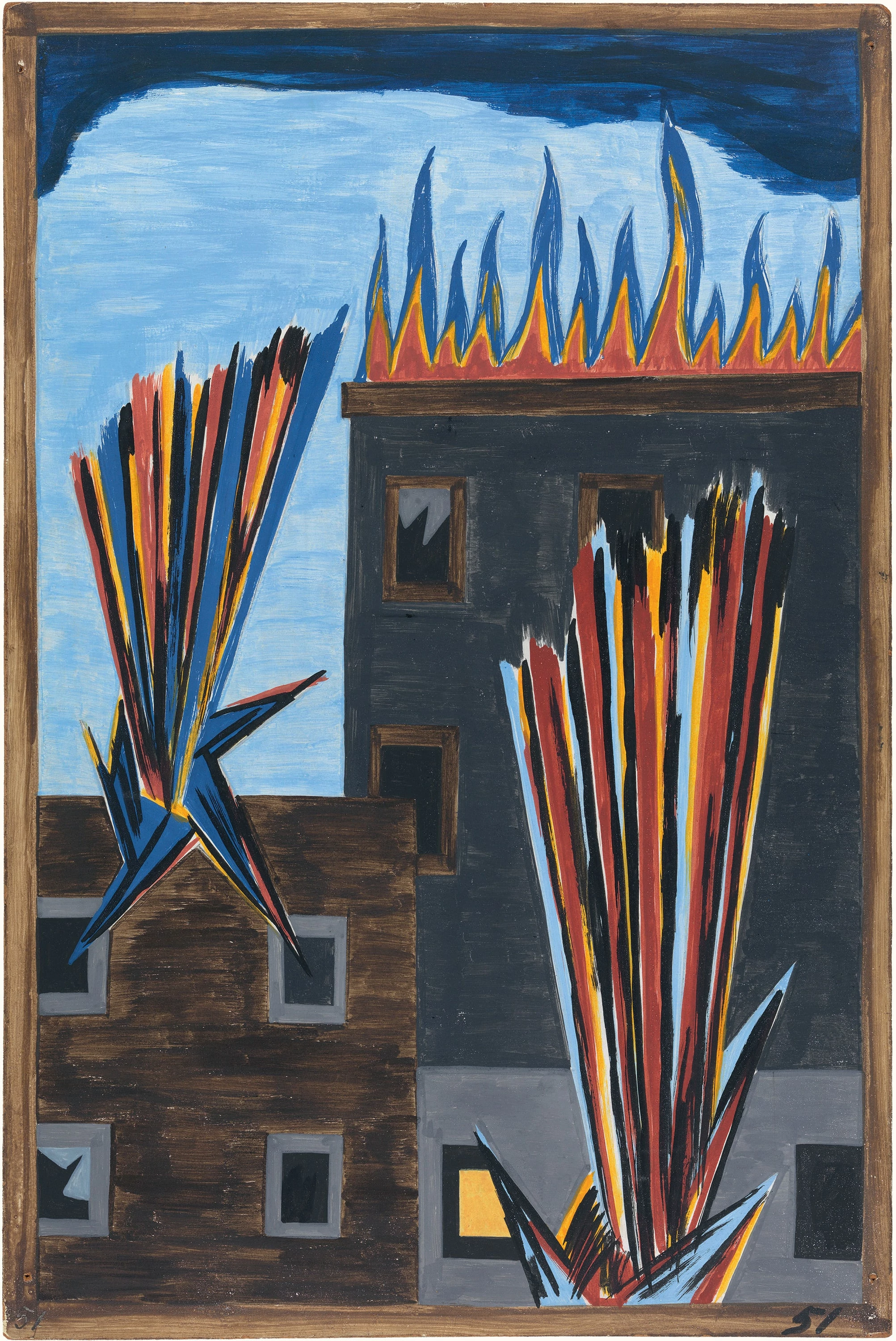
Migration Series No.51: African Americans seeking to find better housing attempted to move into new areas. This resulted in the bombing of their new homes Jacob Lawrence, 1940 – 1941
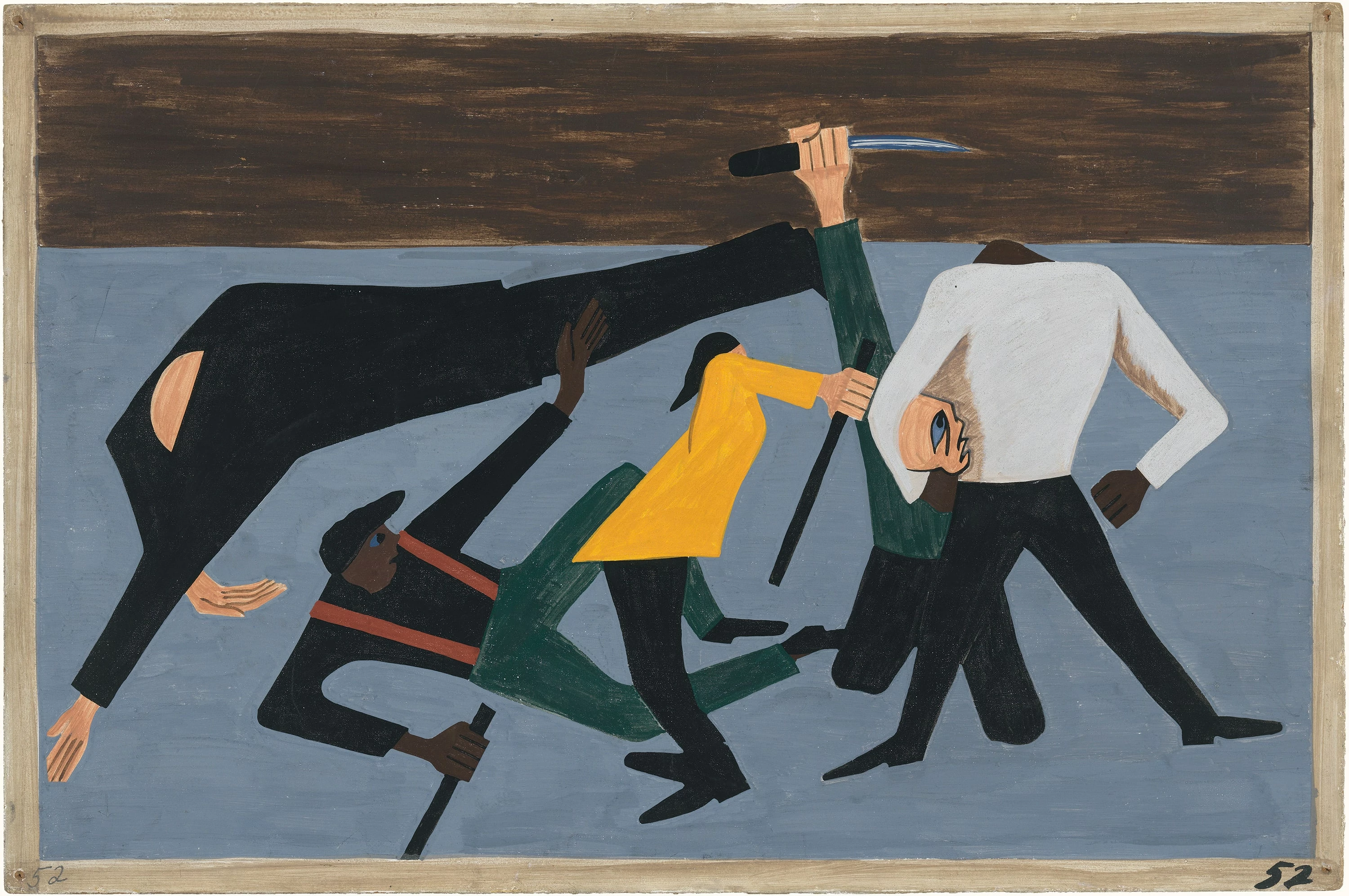
Migration Series No.52: One of the most violent race riots occurred in East St. Louis Jacob Lawrence, 1940 – 1941
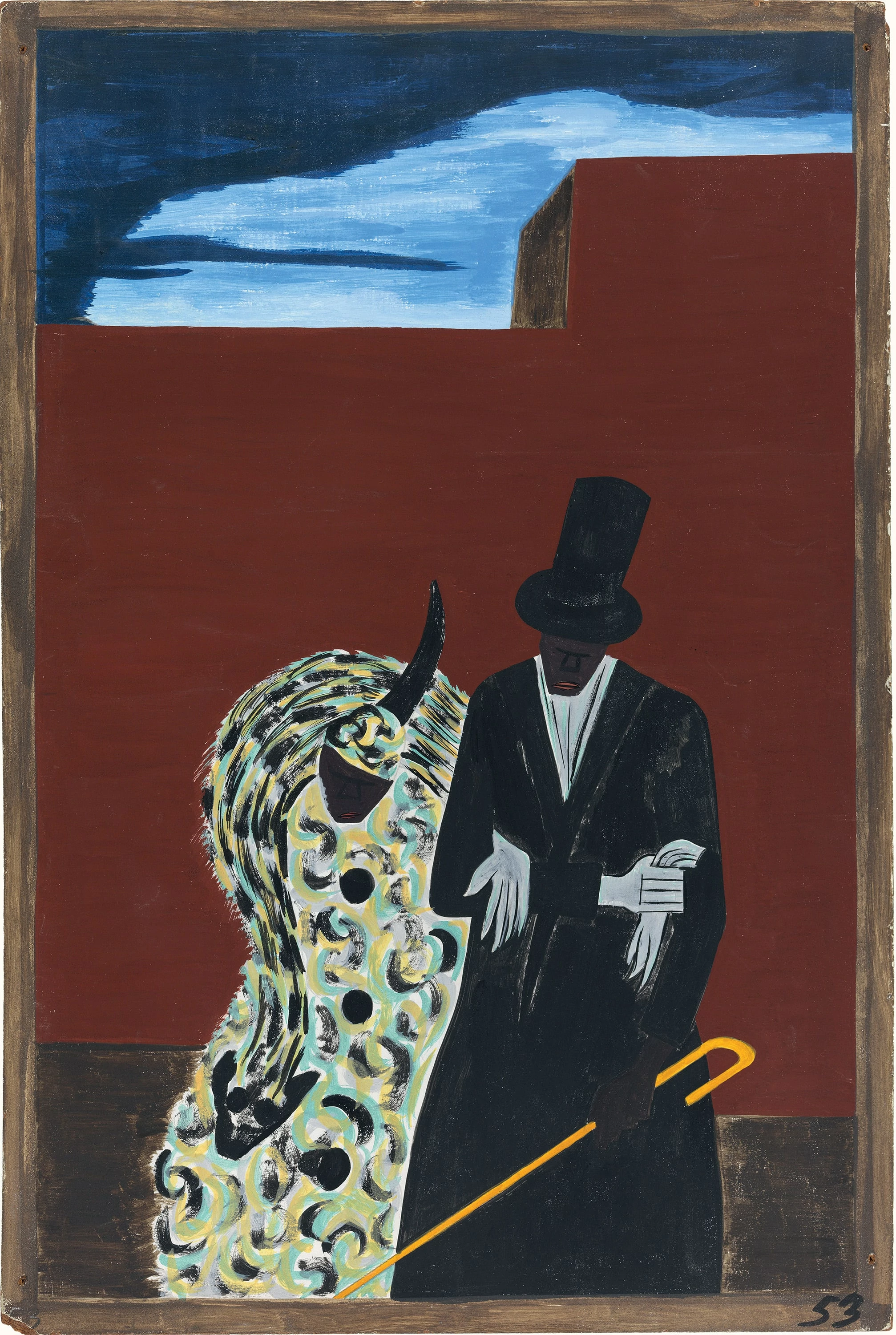
Migration Series No.53: African Americans, long-time residents of northern cities, met the migrants with aloofness and disdain Jacob Lawrence, 1940 – 1941
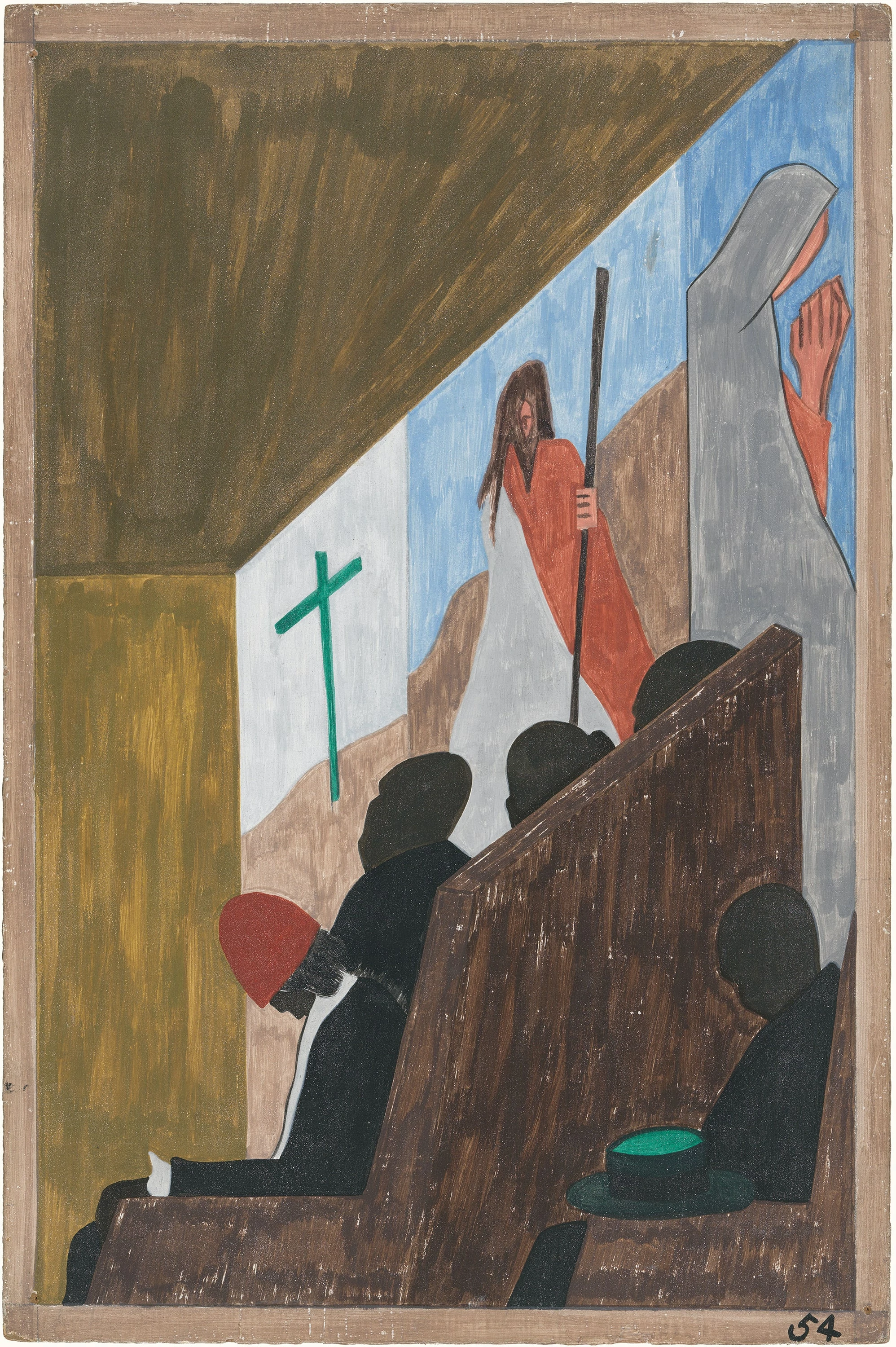
Migration Series No.54: For the migrants, the church was the center of life Jacob Lawrence, 1940 – 1941
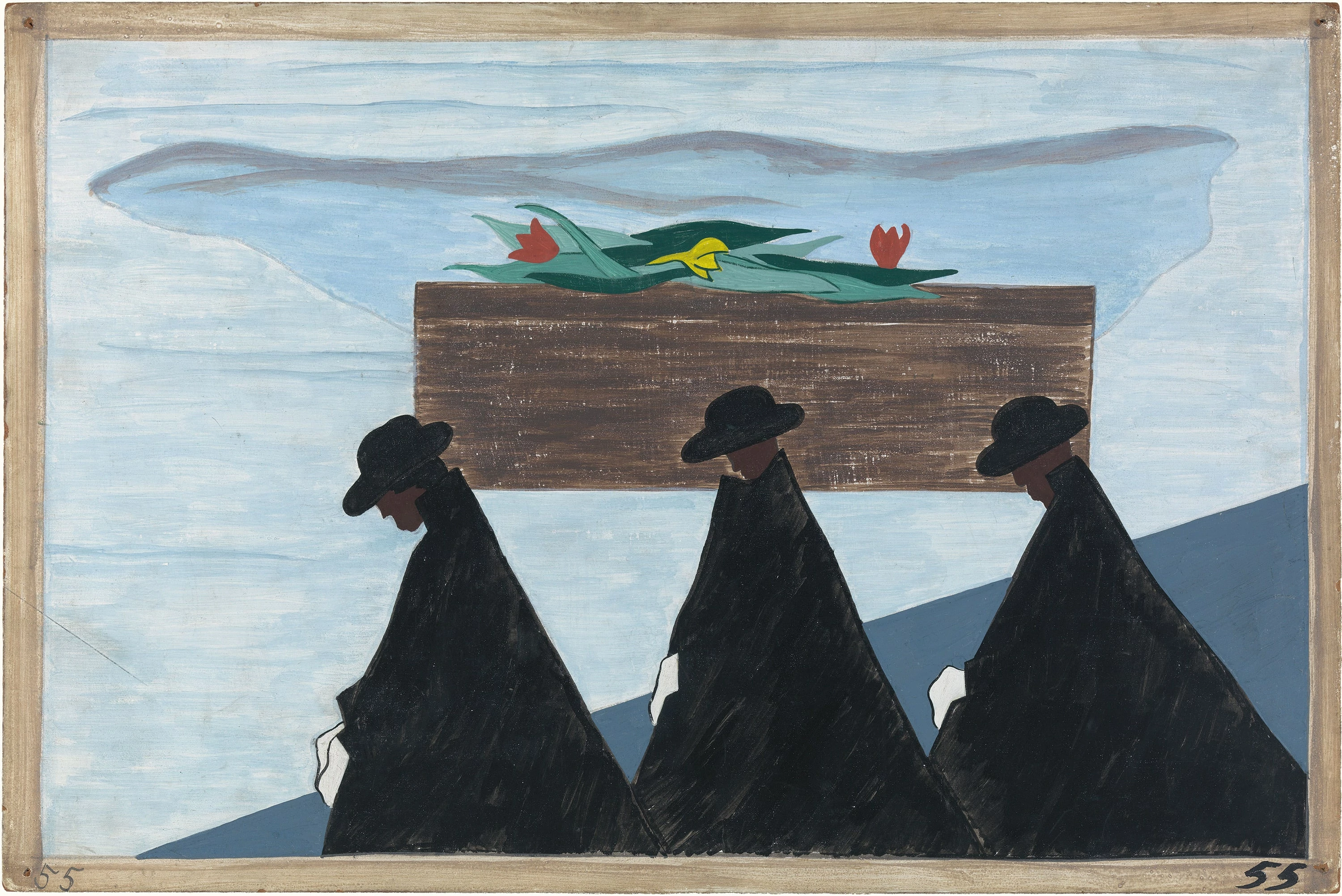
Migration Series No.55: The migrants, having moved suddenly into a crowded and unhealthy environment, soon contracted tuberculosis. The death rate rose Jacob Lawrence, 1940 – 1941
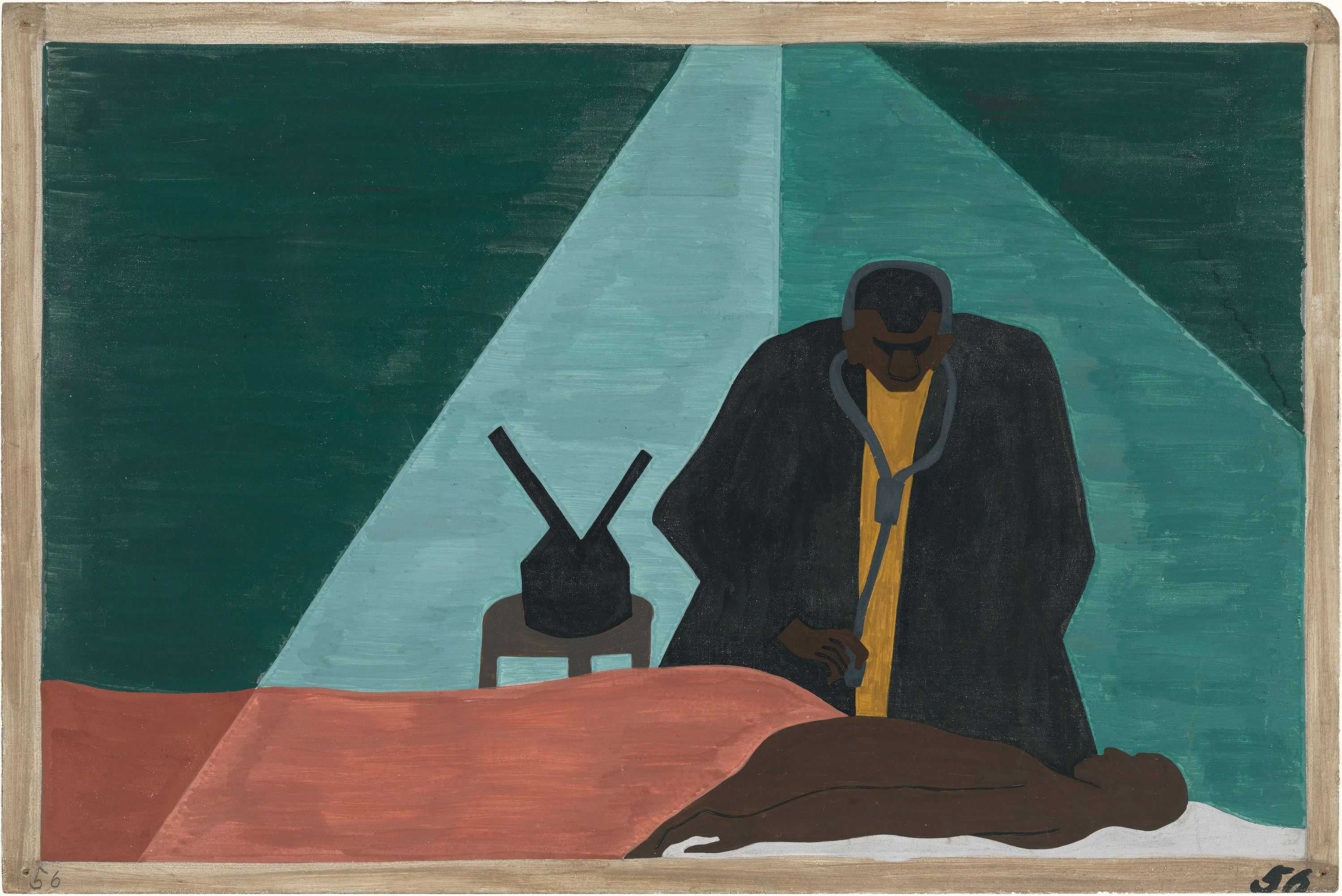
Migration Series No.56: The African American professionals were forced to follow their clients in order to make a living Jacob Lawrence, 1940 – 1941
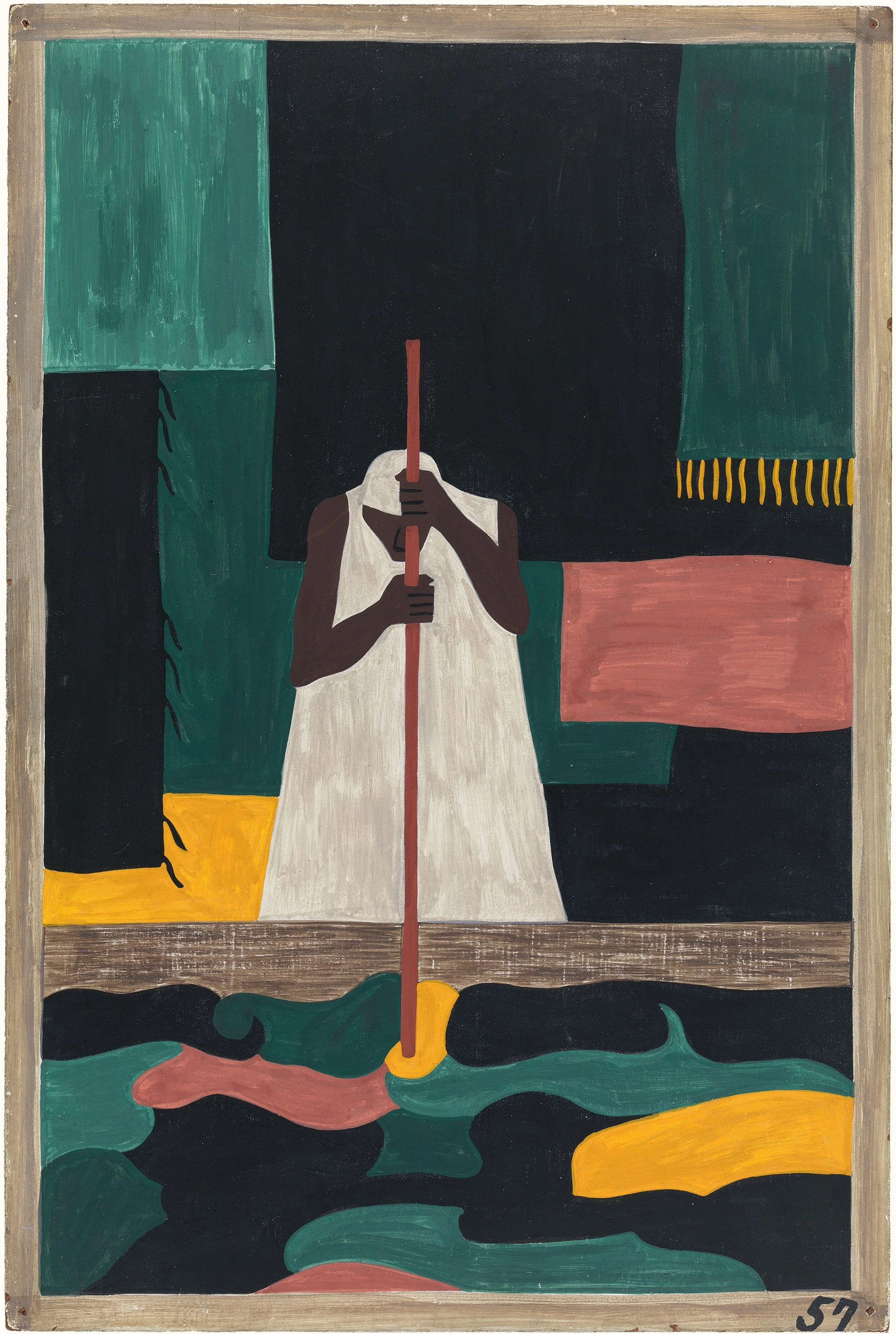
Migration Series No.57: The female workers were the last to arrive north Jacob Lawrence, 1940 – 1941
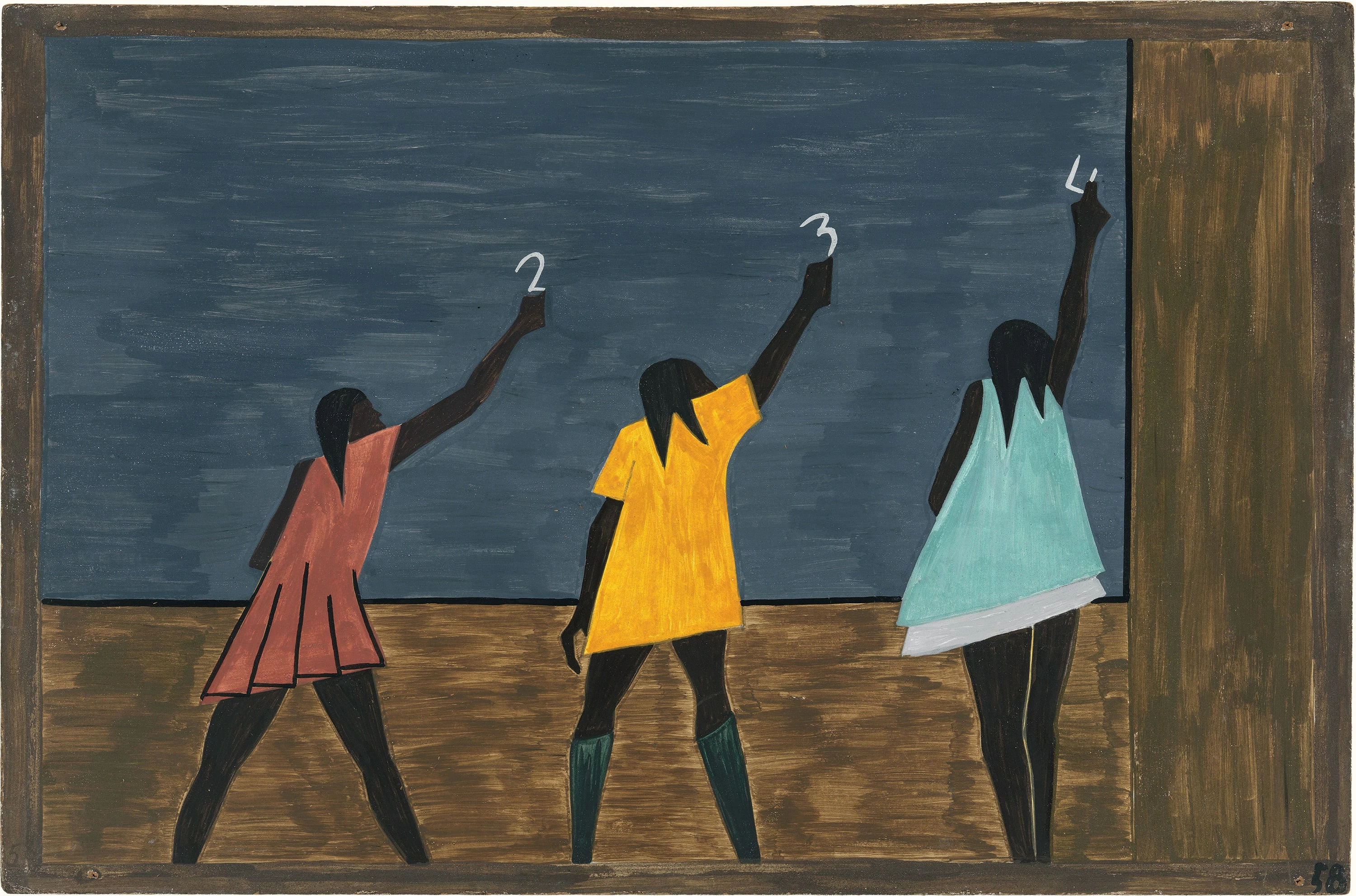
Migration Series No.58: In the North the African American had more educational opportunities Jacob Lawrence, 1940 – 1941
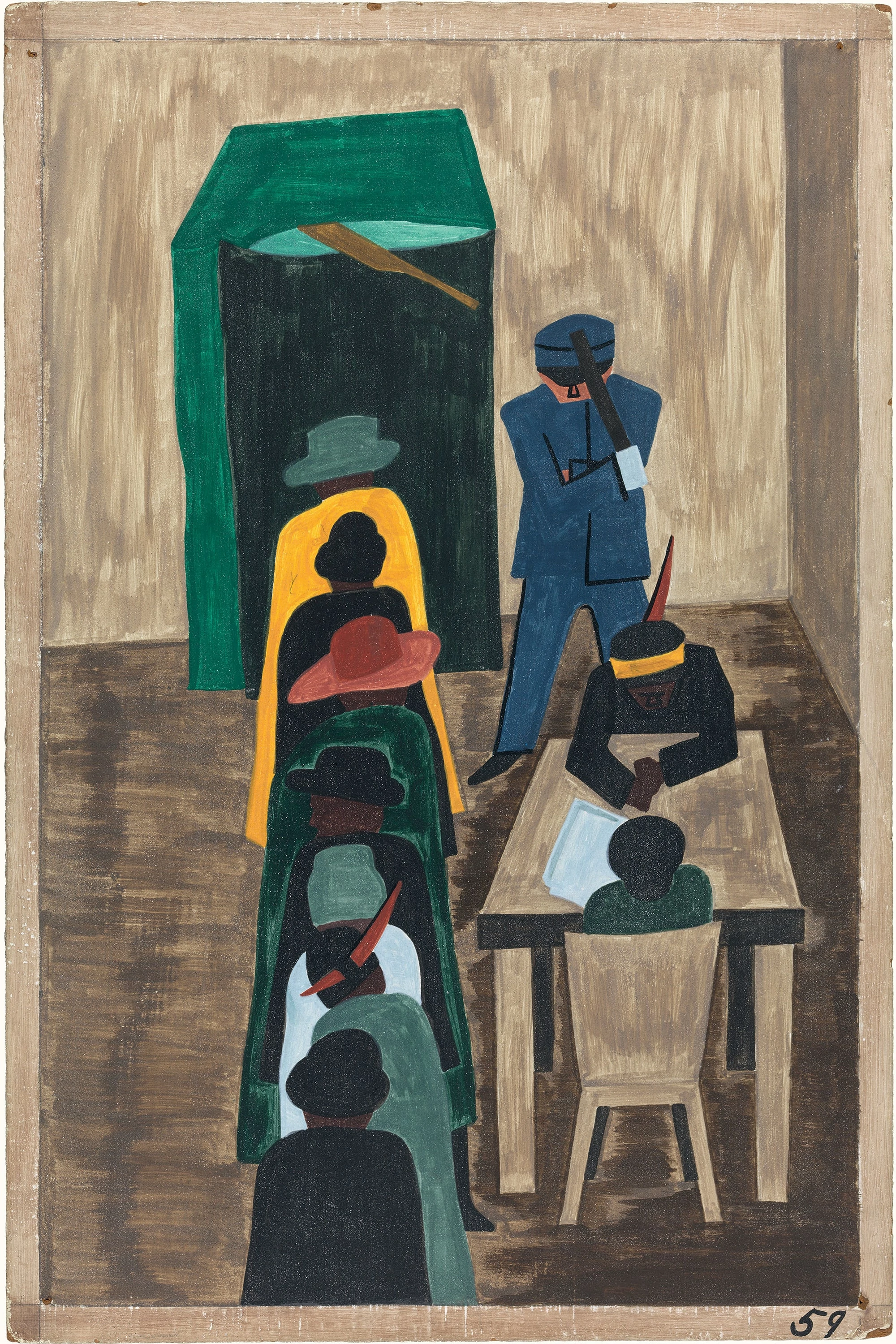
Migration Series No.59: In the North they had the freedom to vote Jacob Lawrence, 1940 – 1941
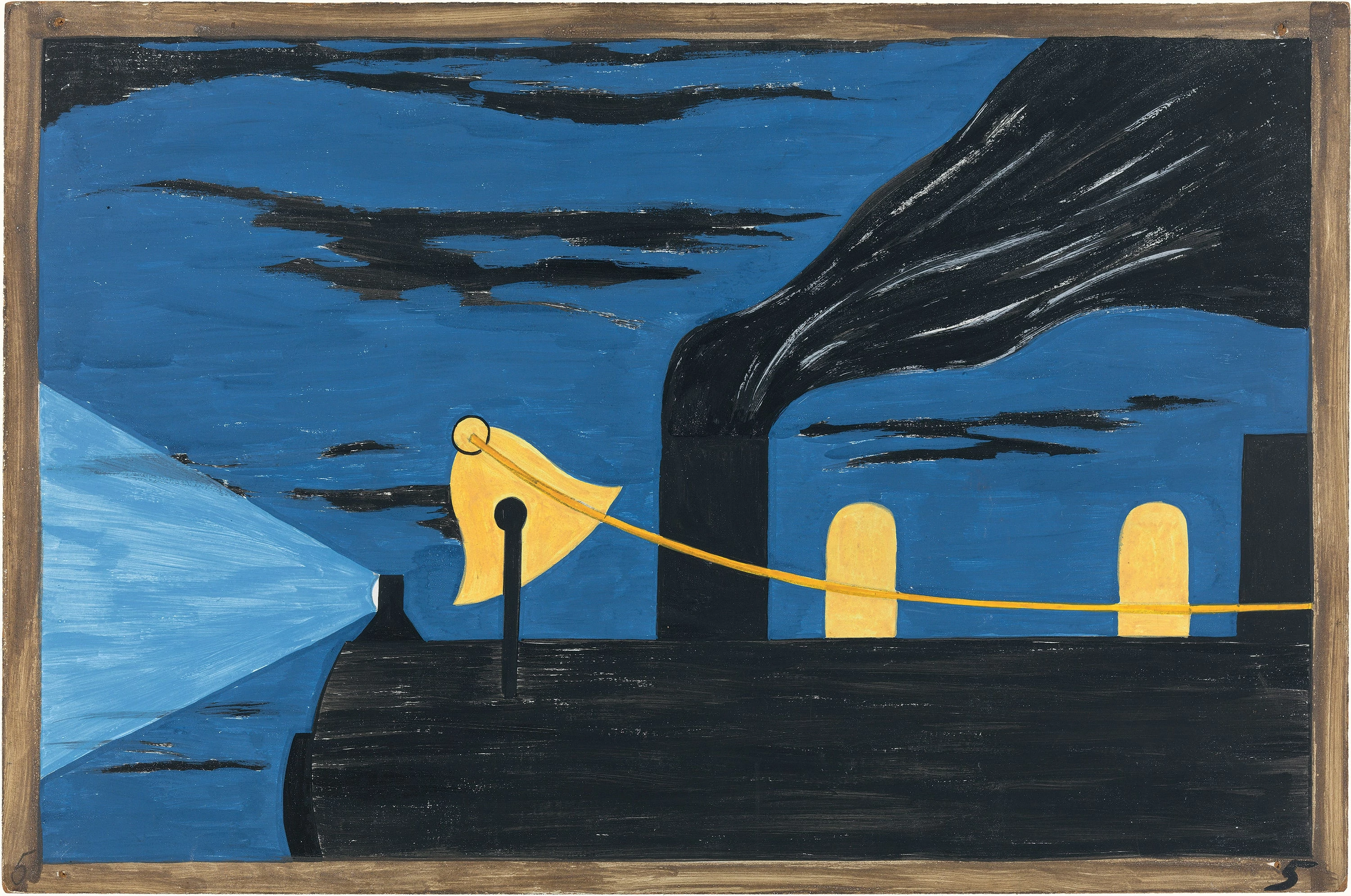
Migration Series No.5: Migrants were advanced passage on the railroads, paid for by northern industry. Northern industry was to be repaid by the migrants out of their future wages Jacob Lawrence, 1940 – 1941
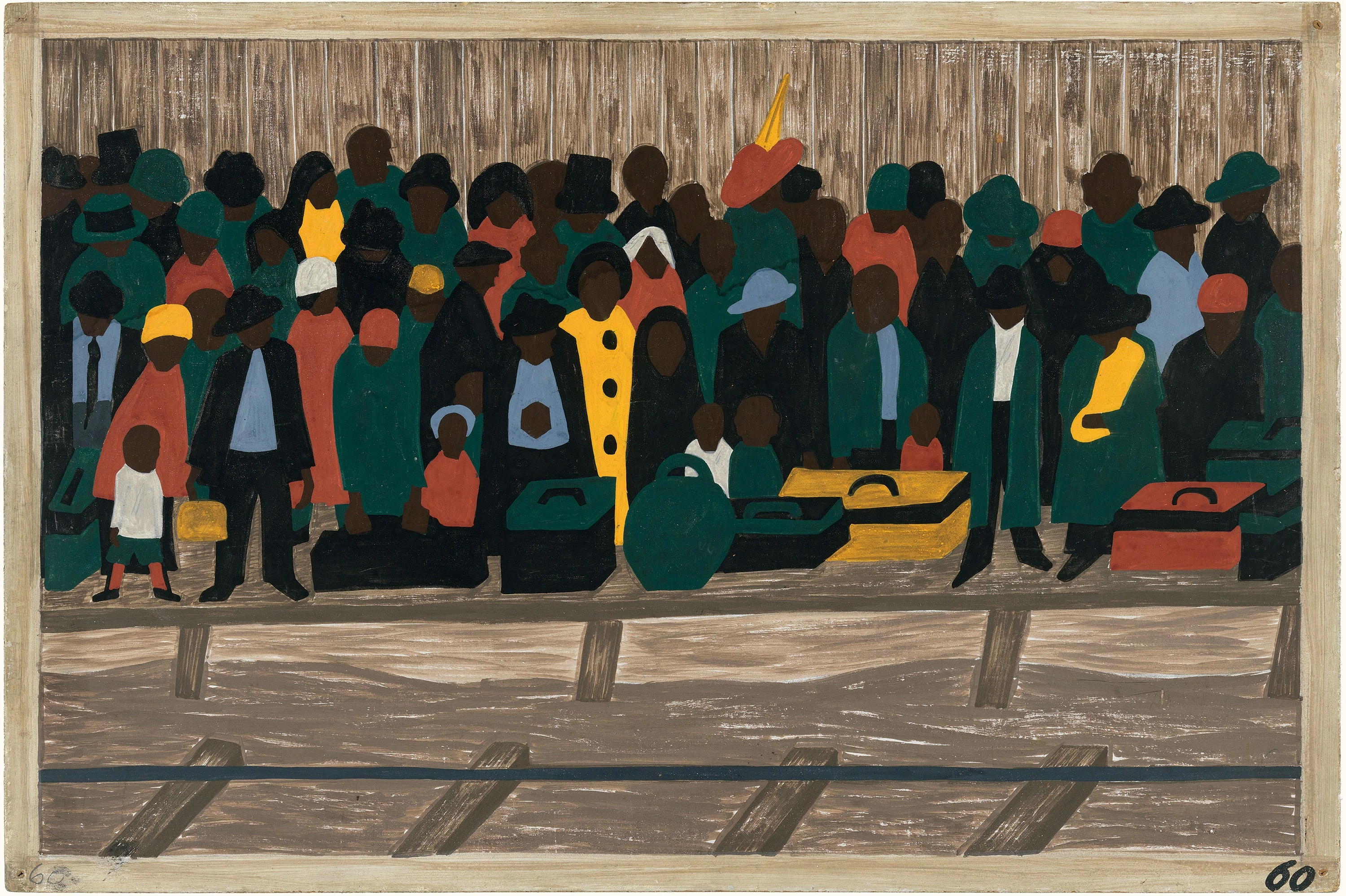
Migration Series No.60: And the migrants kept coming Jacob Lawrence, 1940 – 1941
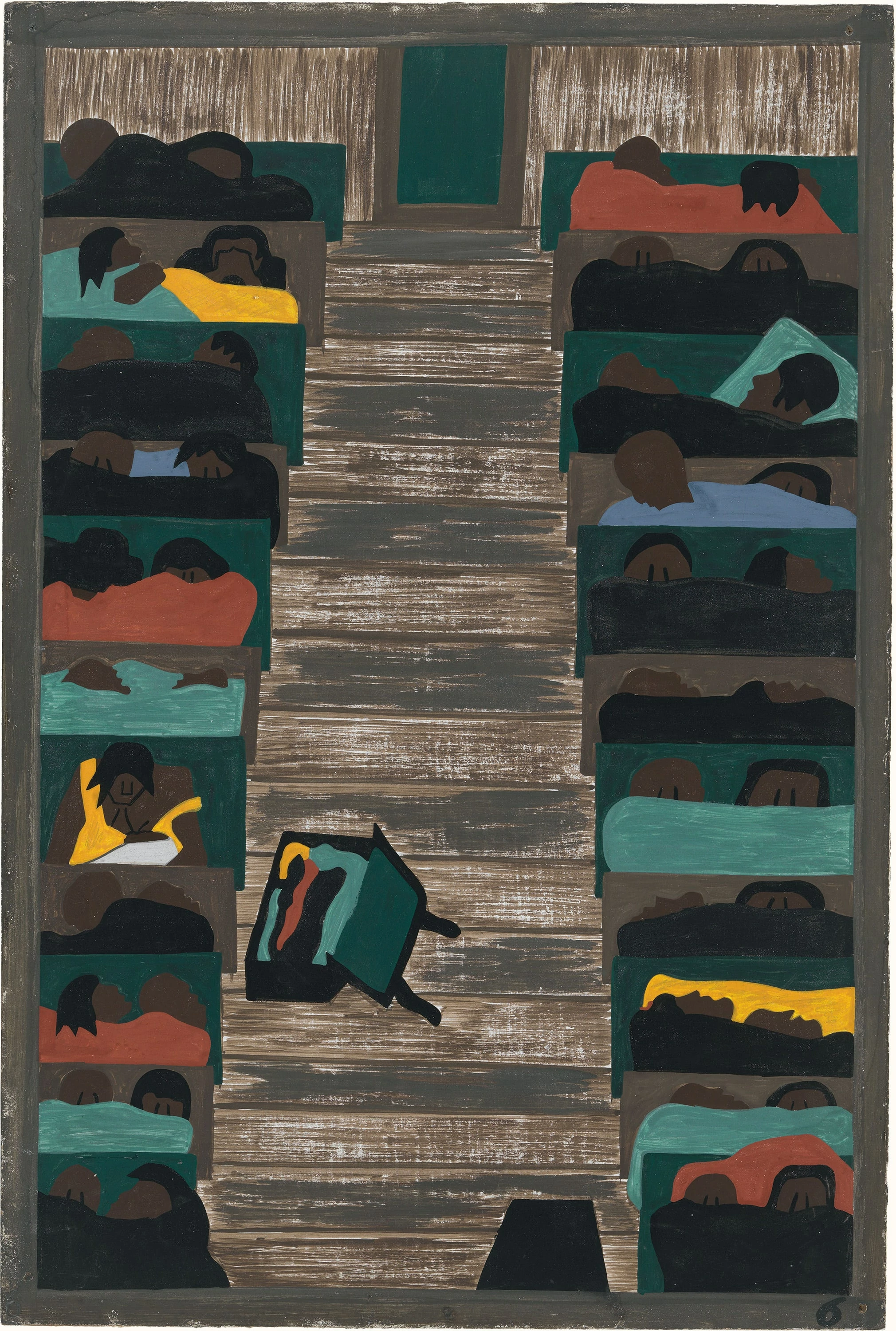
Migration Series No.6: The trains were crowded with migrants Jacob Lawrence, 1940 – 1941
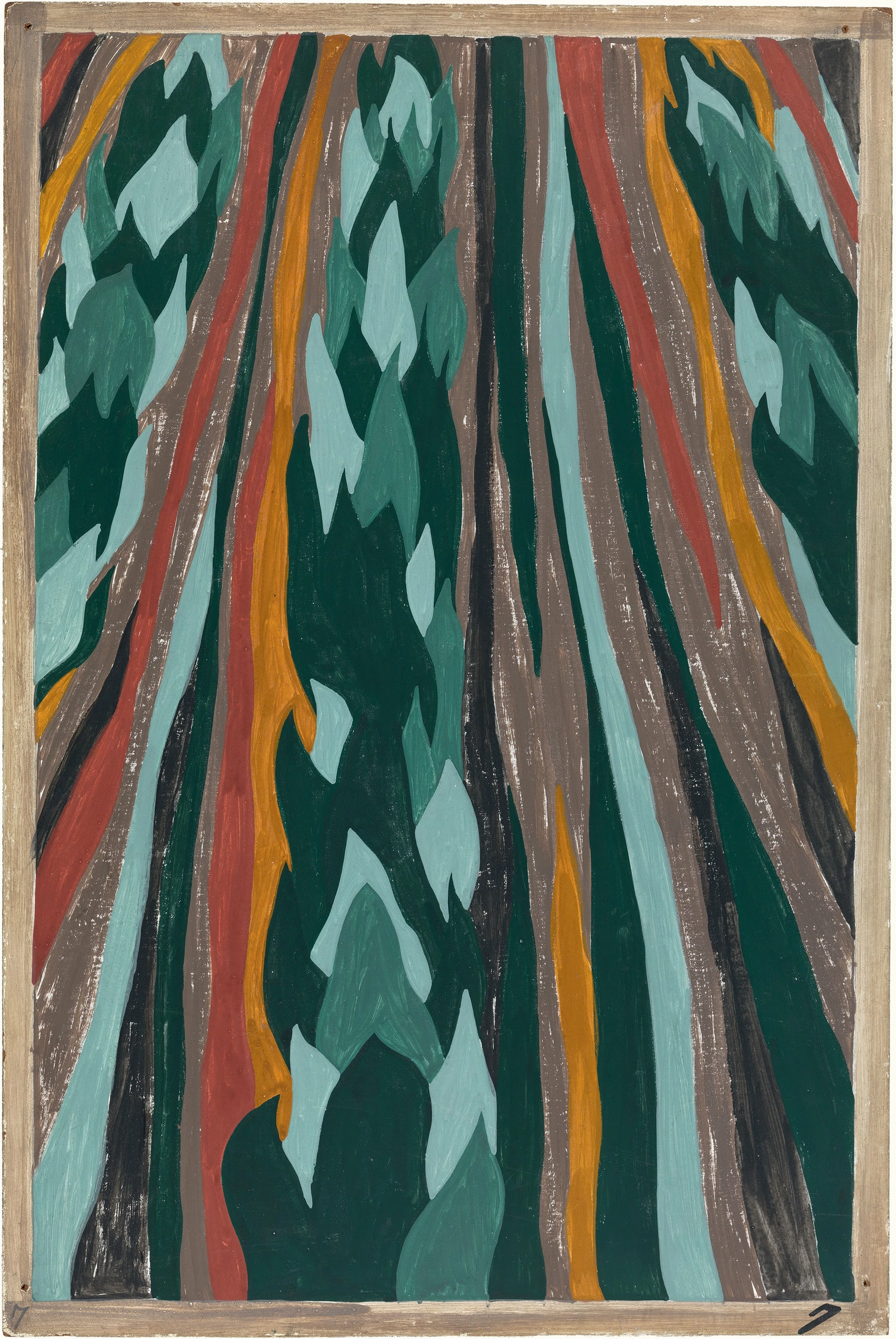
Migration Series No.7: The migrant, whose life had been rural and nurtured by the earth, was now moving to urban life dependent on industrial machinery Jacob Lawrence, 1940 – 1941
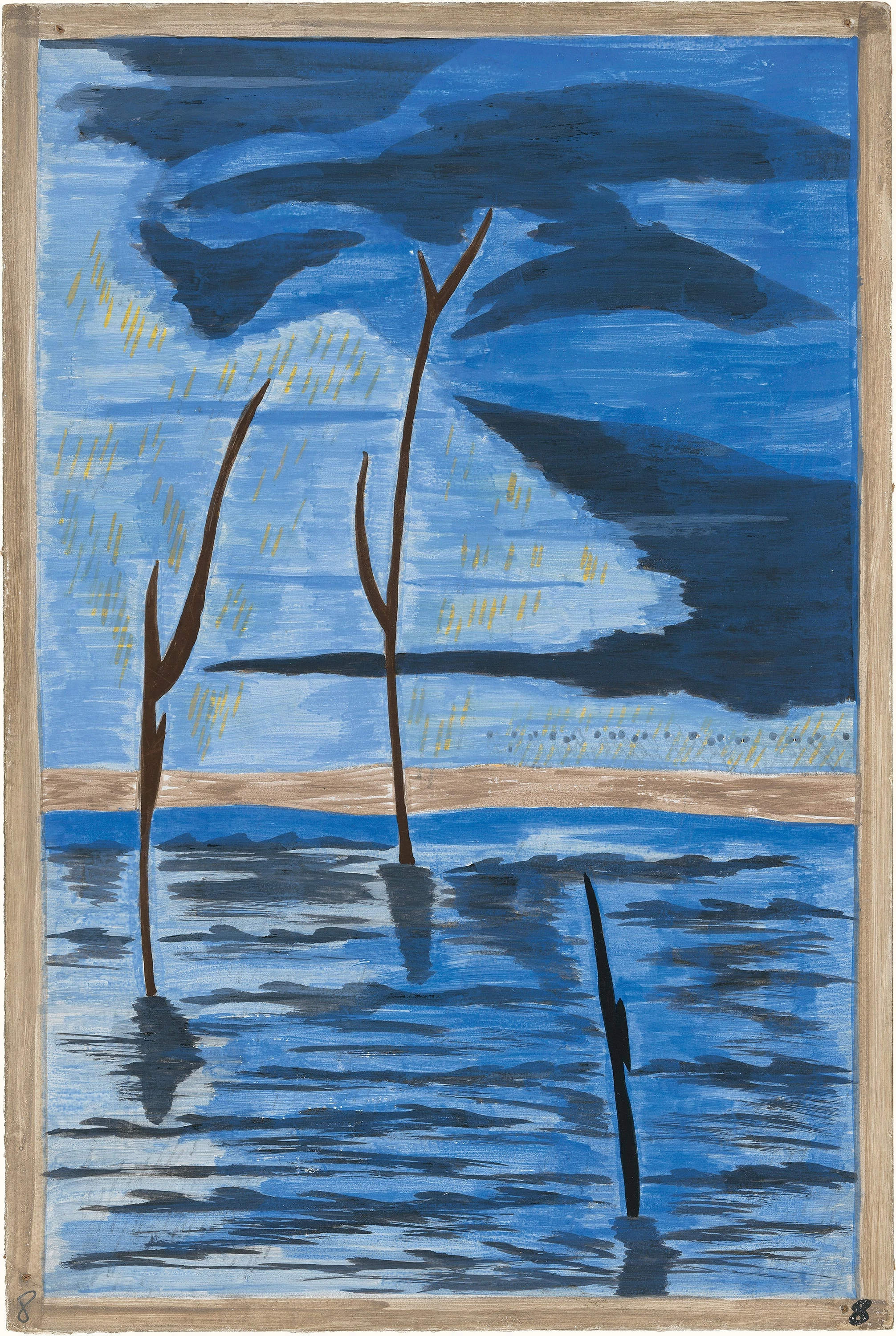
Migration Series No.8: Some left because of promises of work in the North. Others left because their farms had been devastated by floods Jacob Lawrence, 1940 – 1941
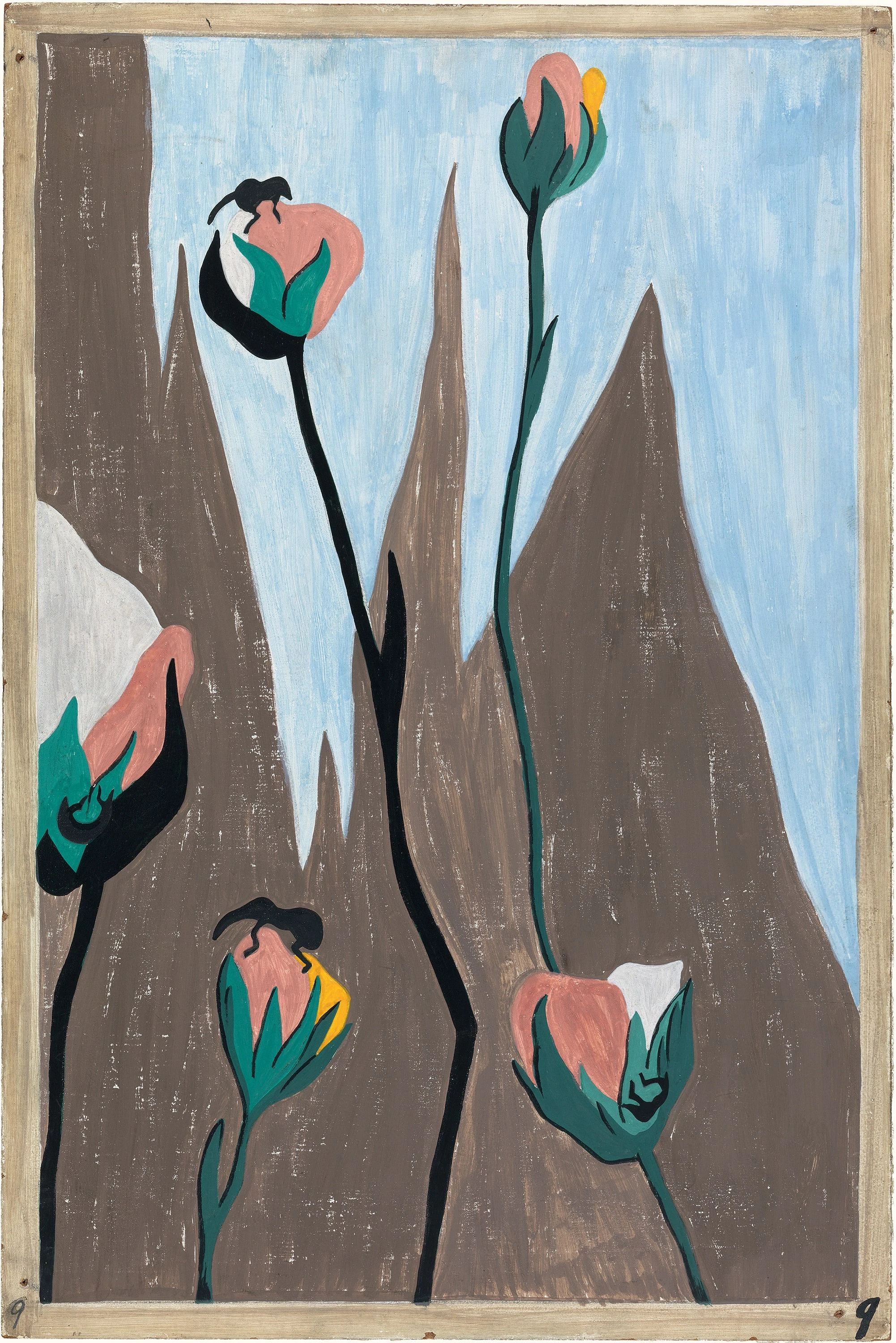
Migration Series No.9: They left because the boll weevil had ravaged the cotton crop Jacob Lawrence, 1940 – 1941
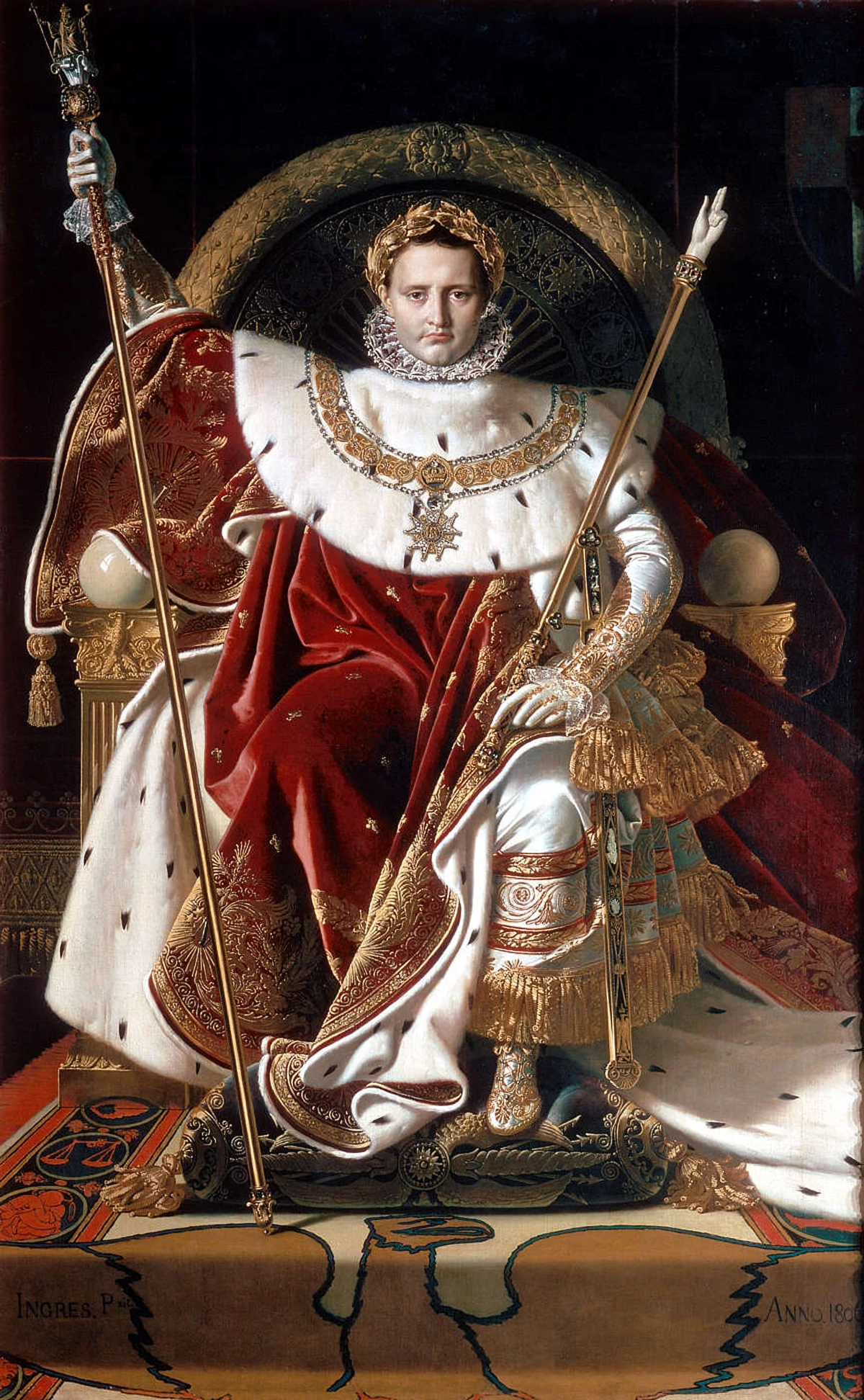
Napoleon I on his Imperial Throne Jean-Auguste-Dominique Ingres, 1806
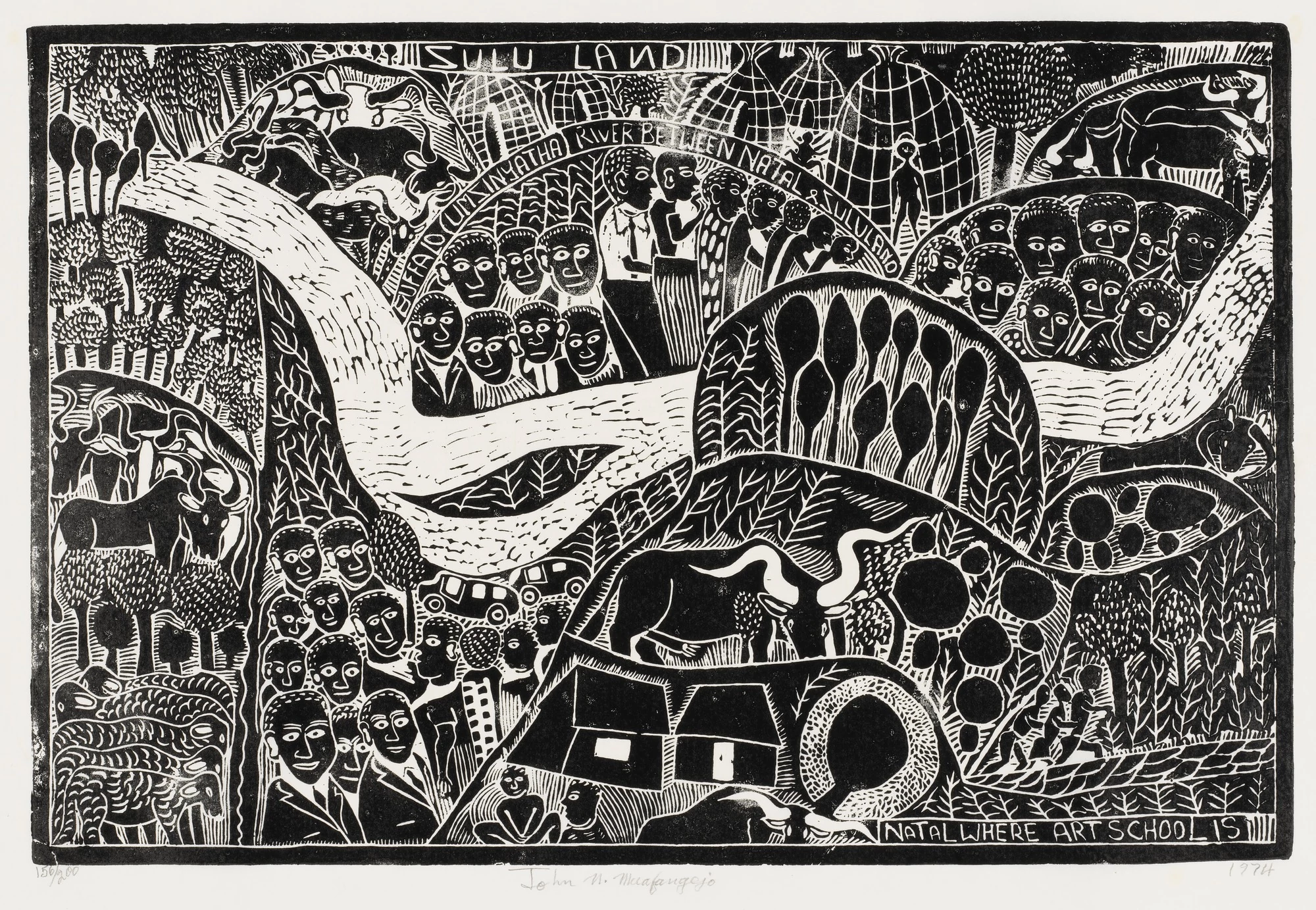
Natal Where Art School Is John Ndevasia Muafangejo, 1974
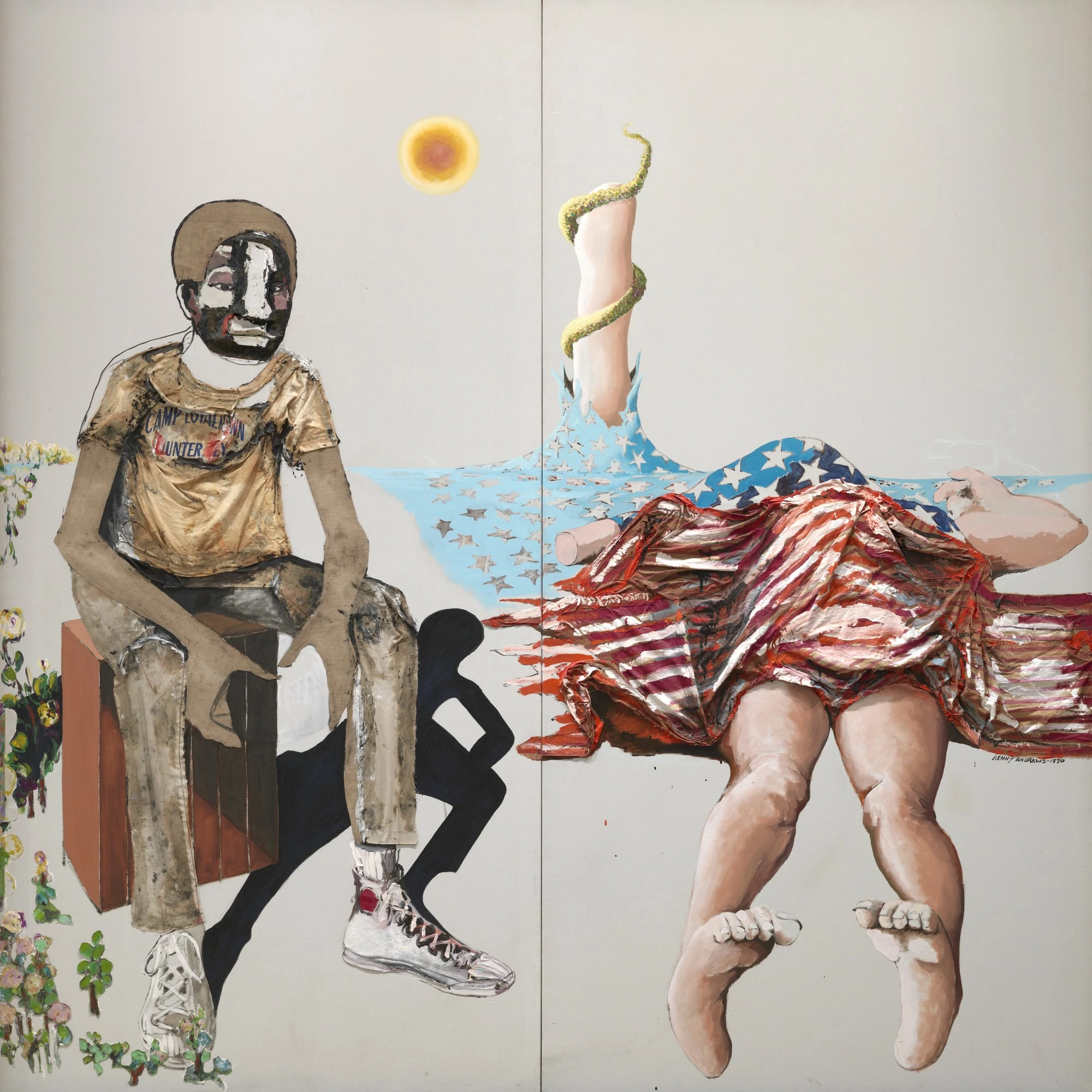
No More Games Benny Andrews, 1970
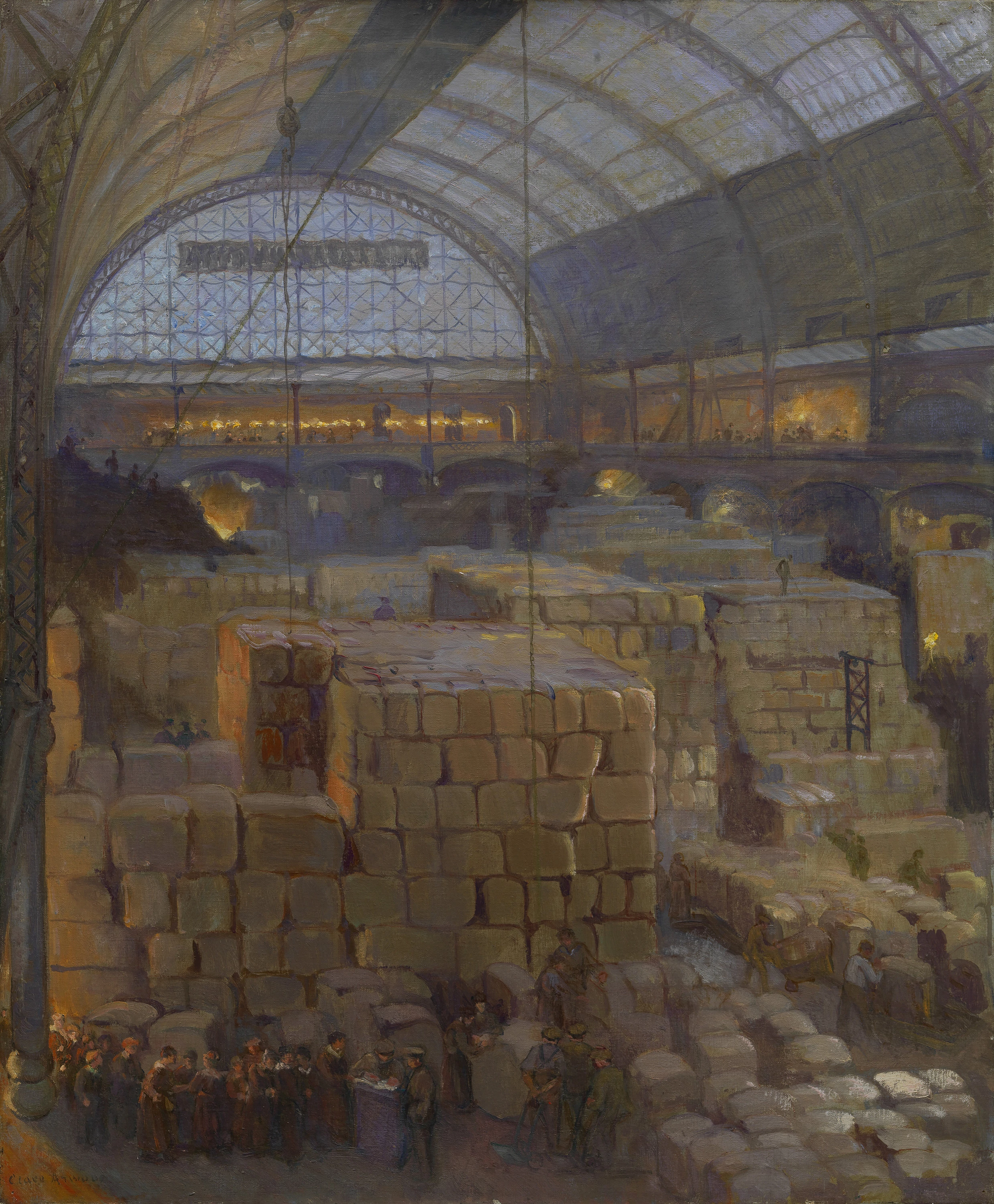
Olympia in War Time: Royal Army Clothing Depot Clare Atwood, 1918
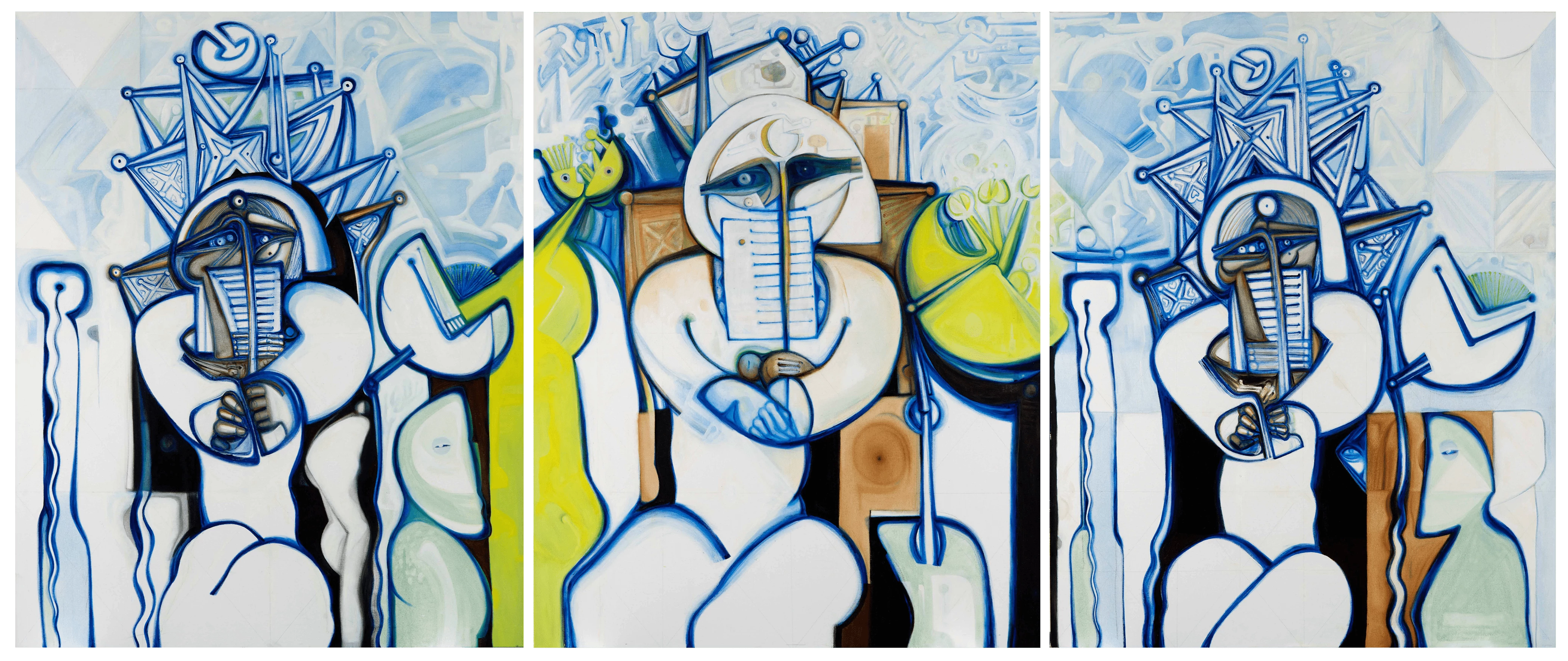
One Day I Happened to See a Ruler Ibrahim El-Salahi, 2008
